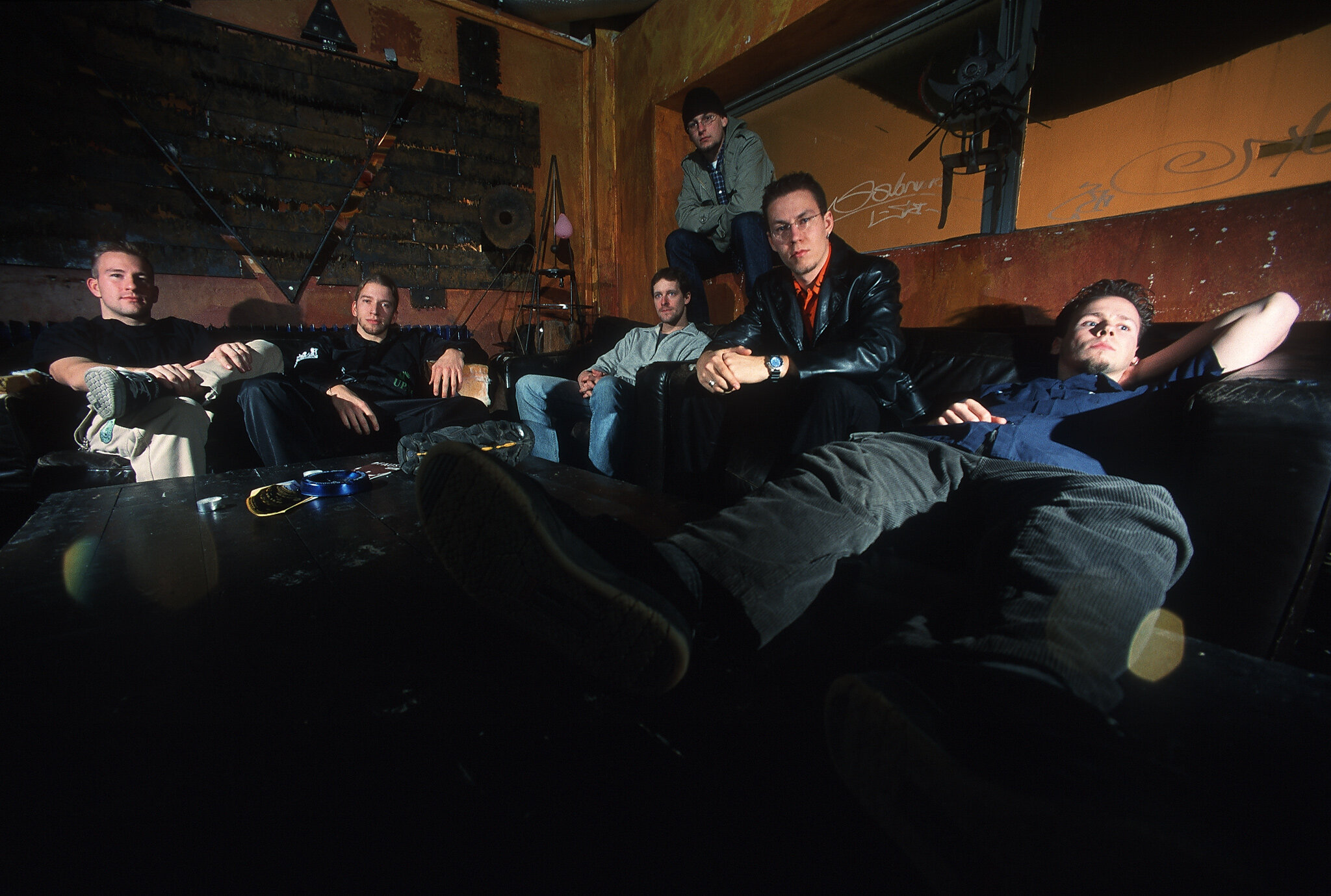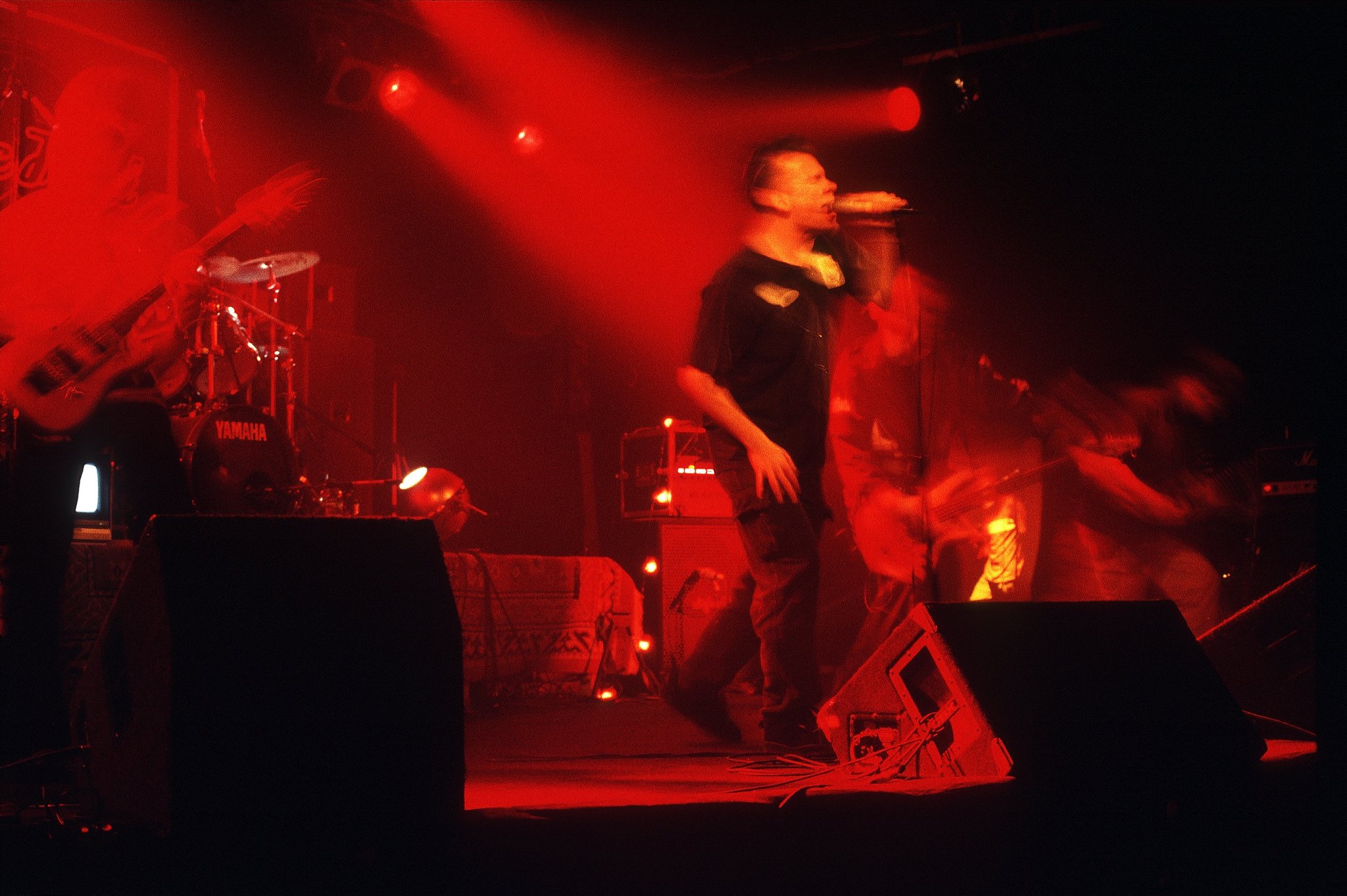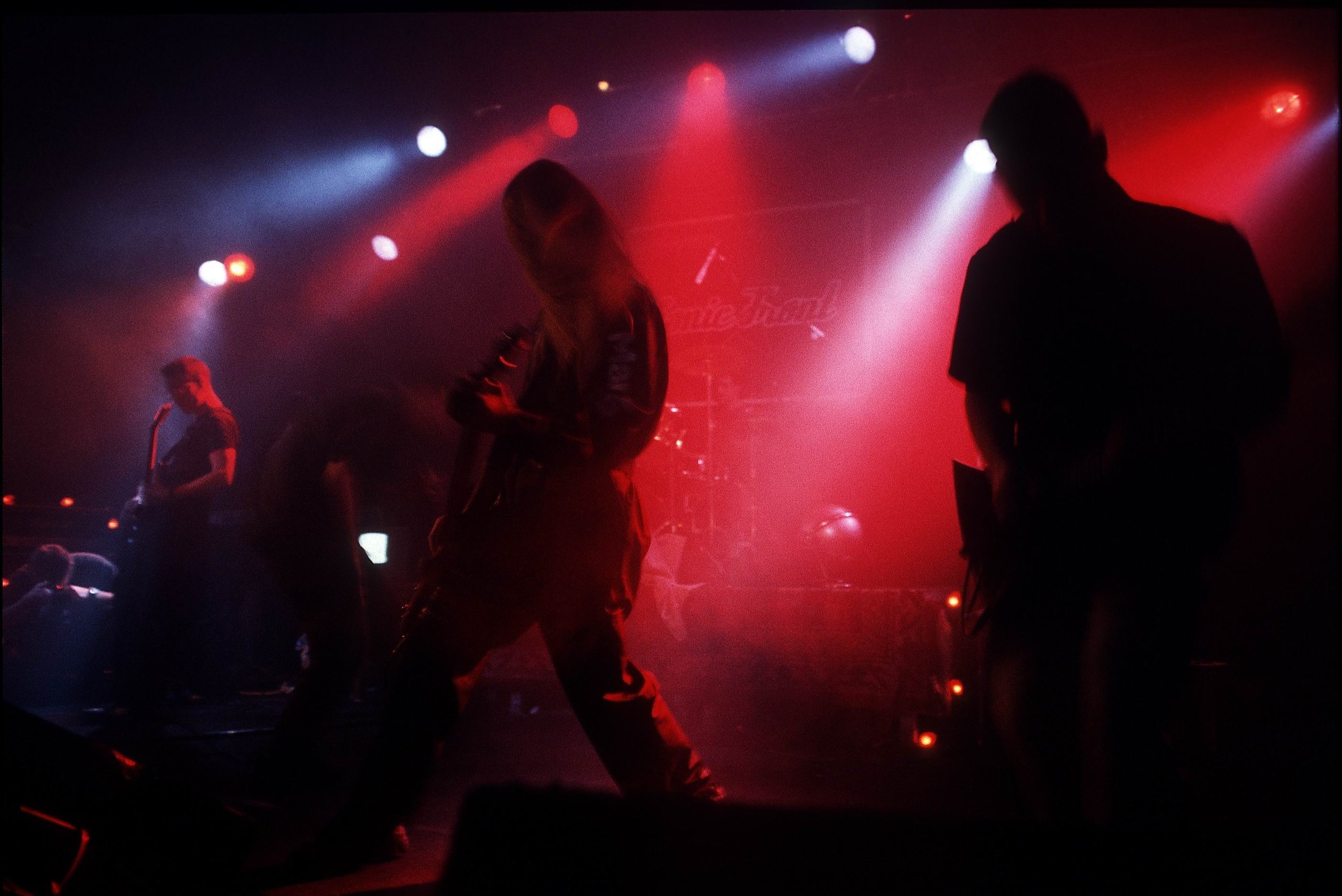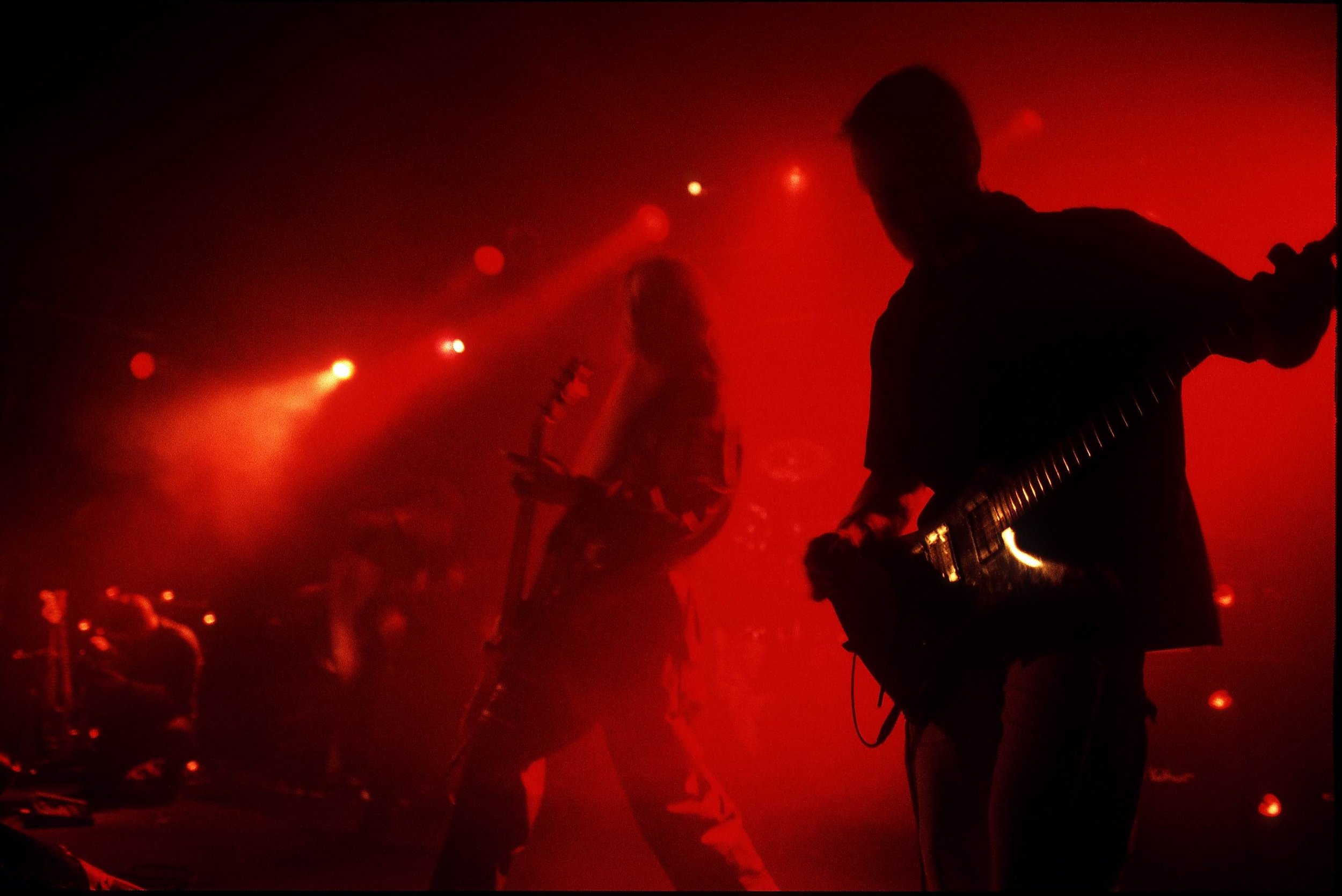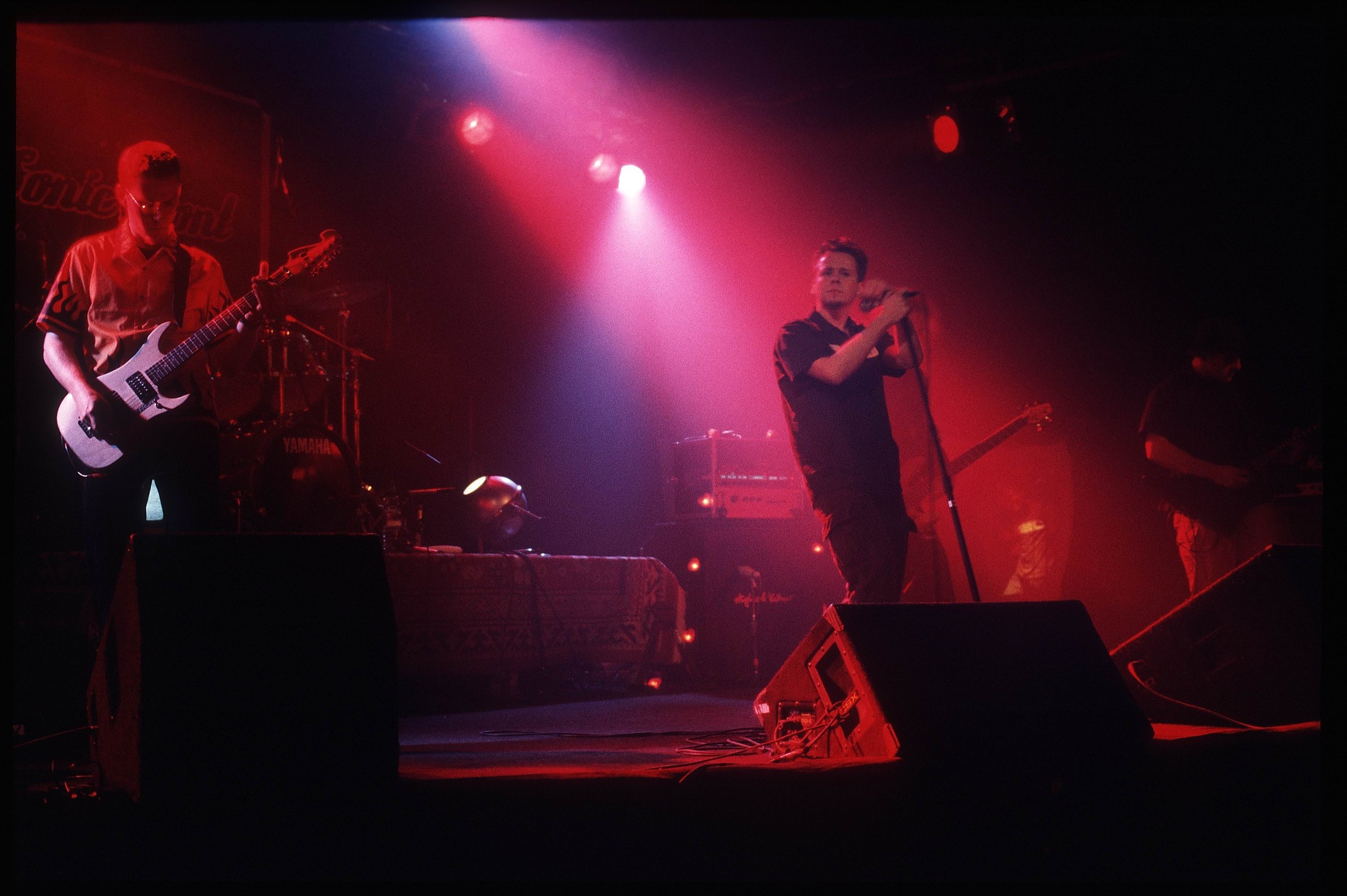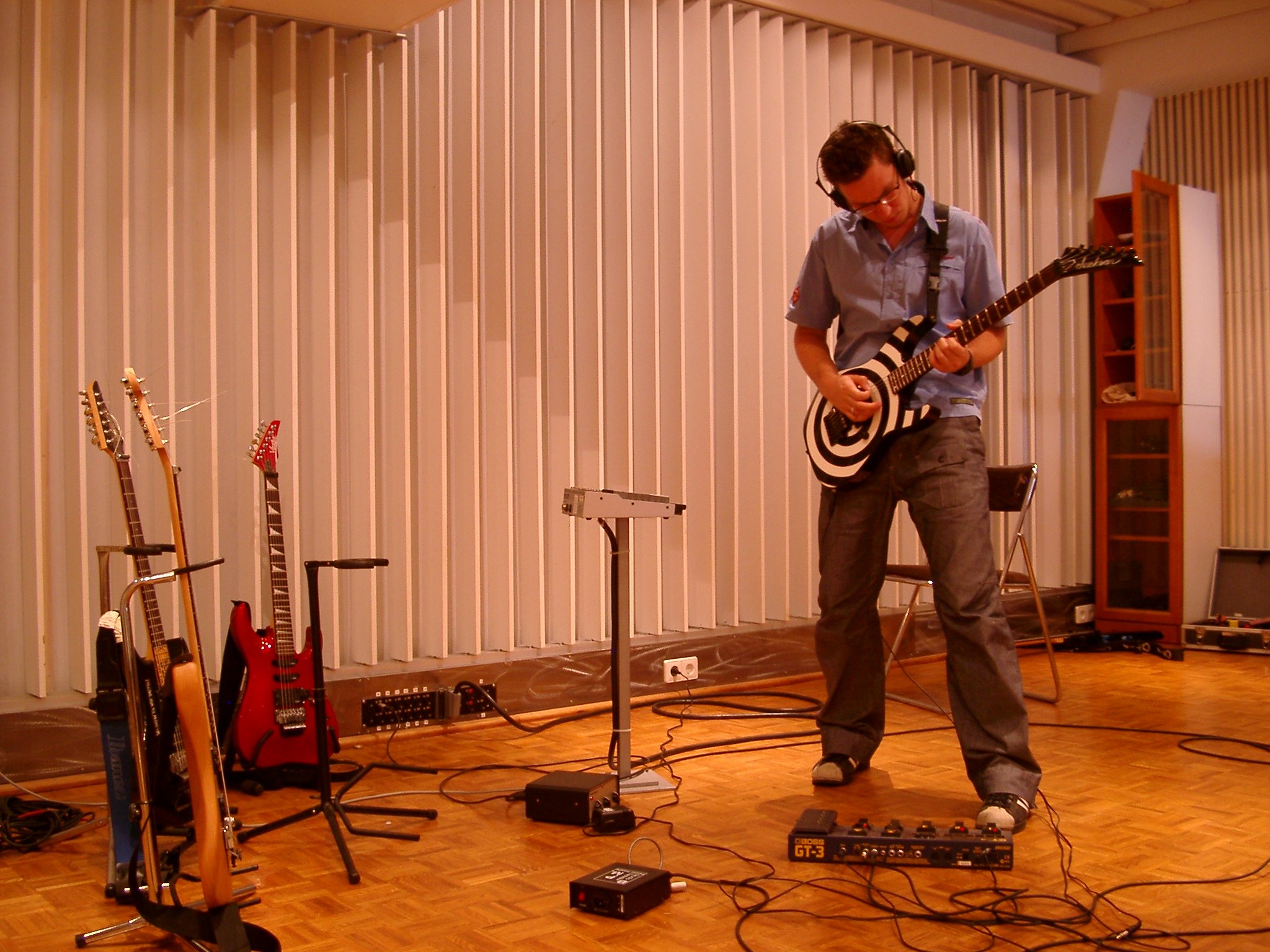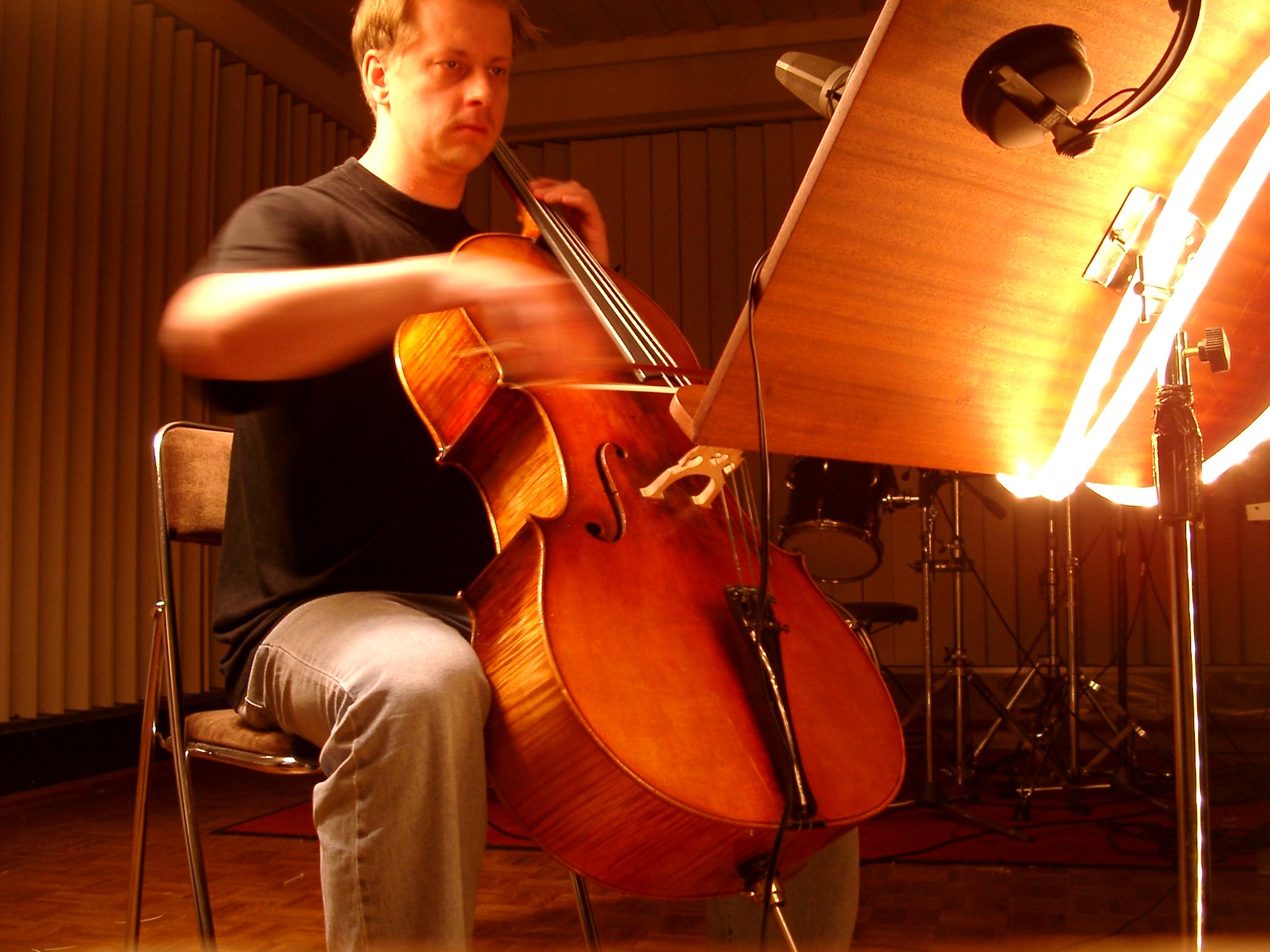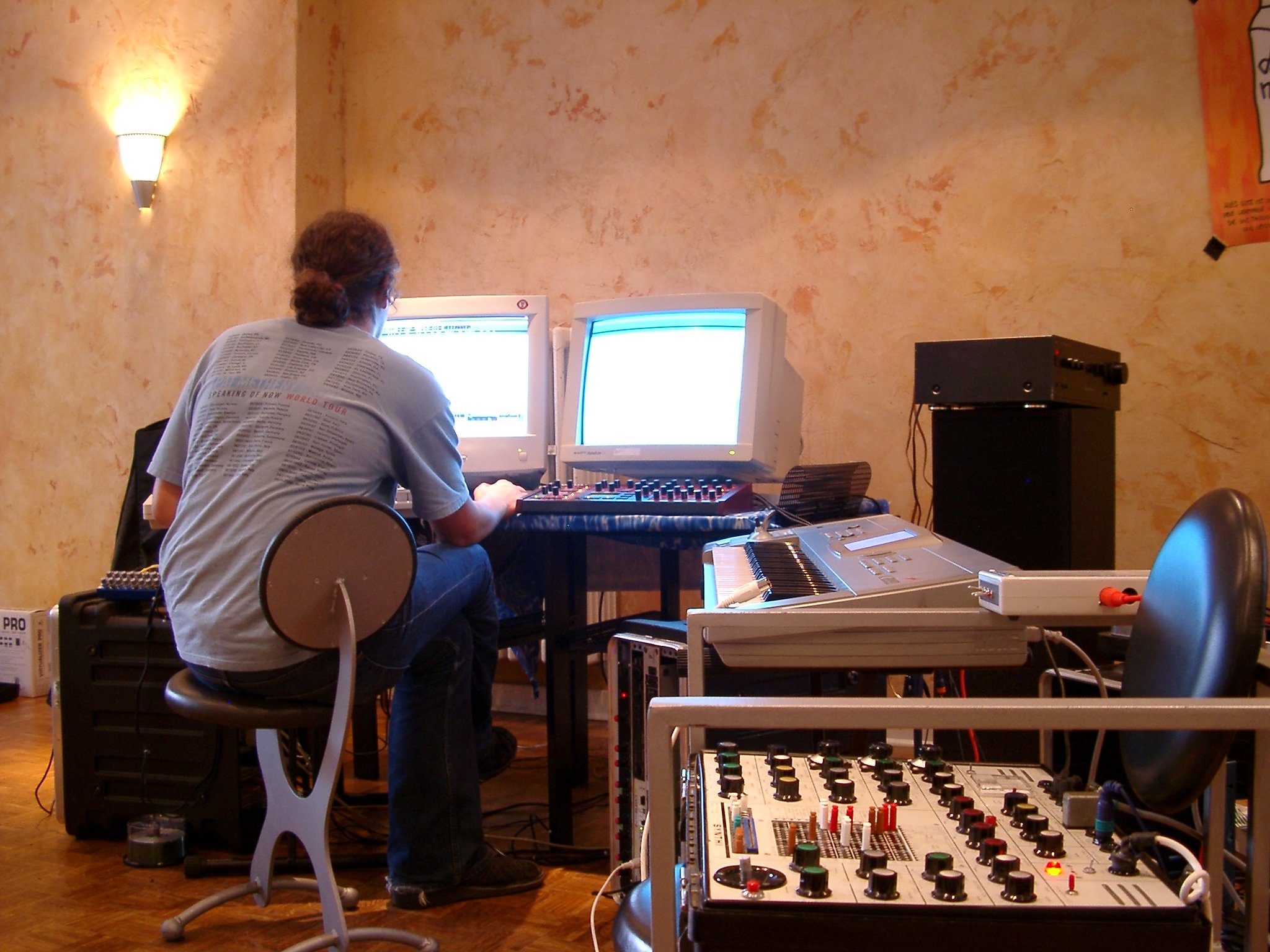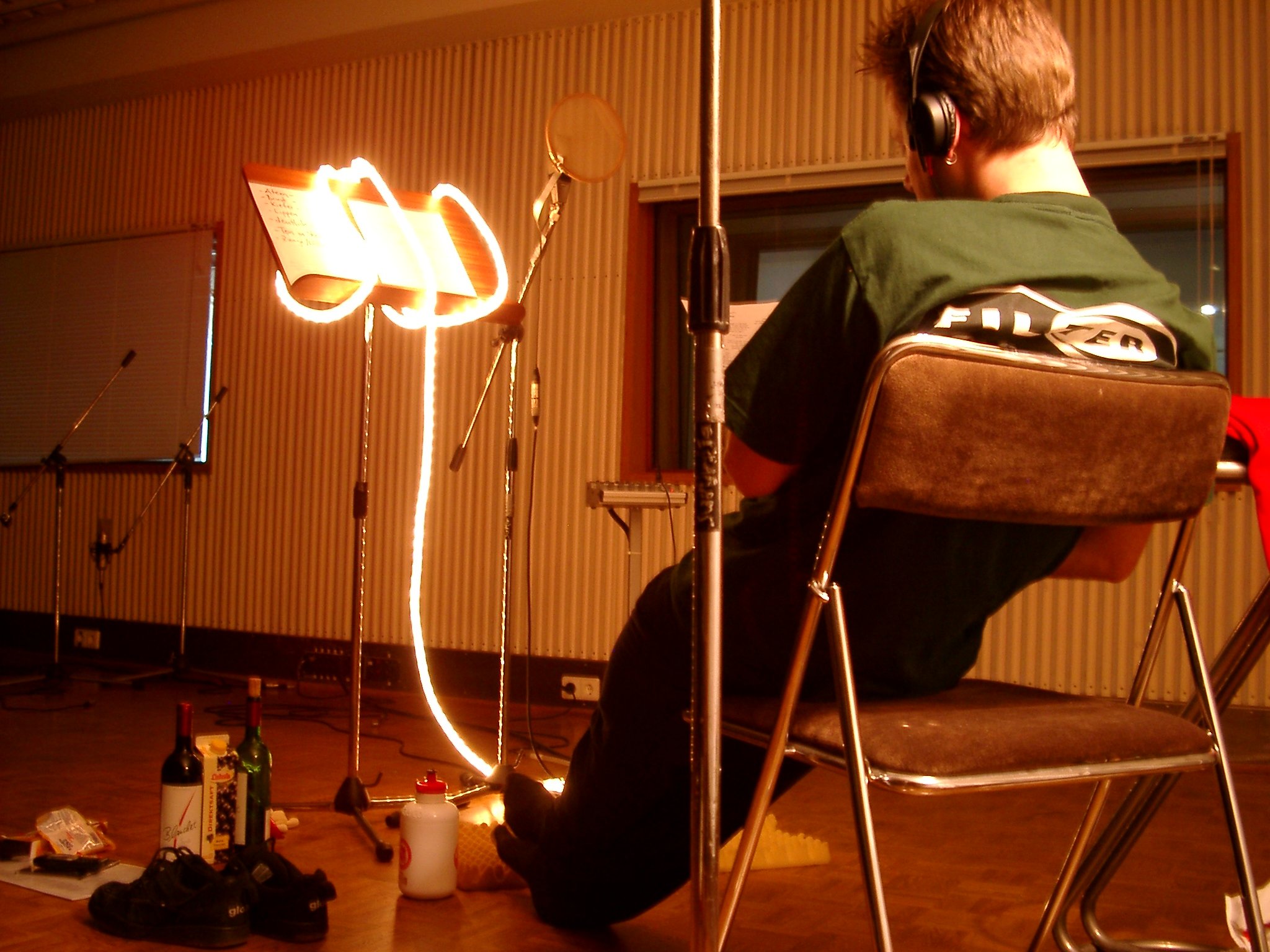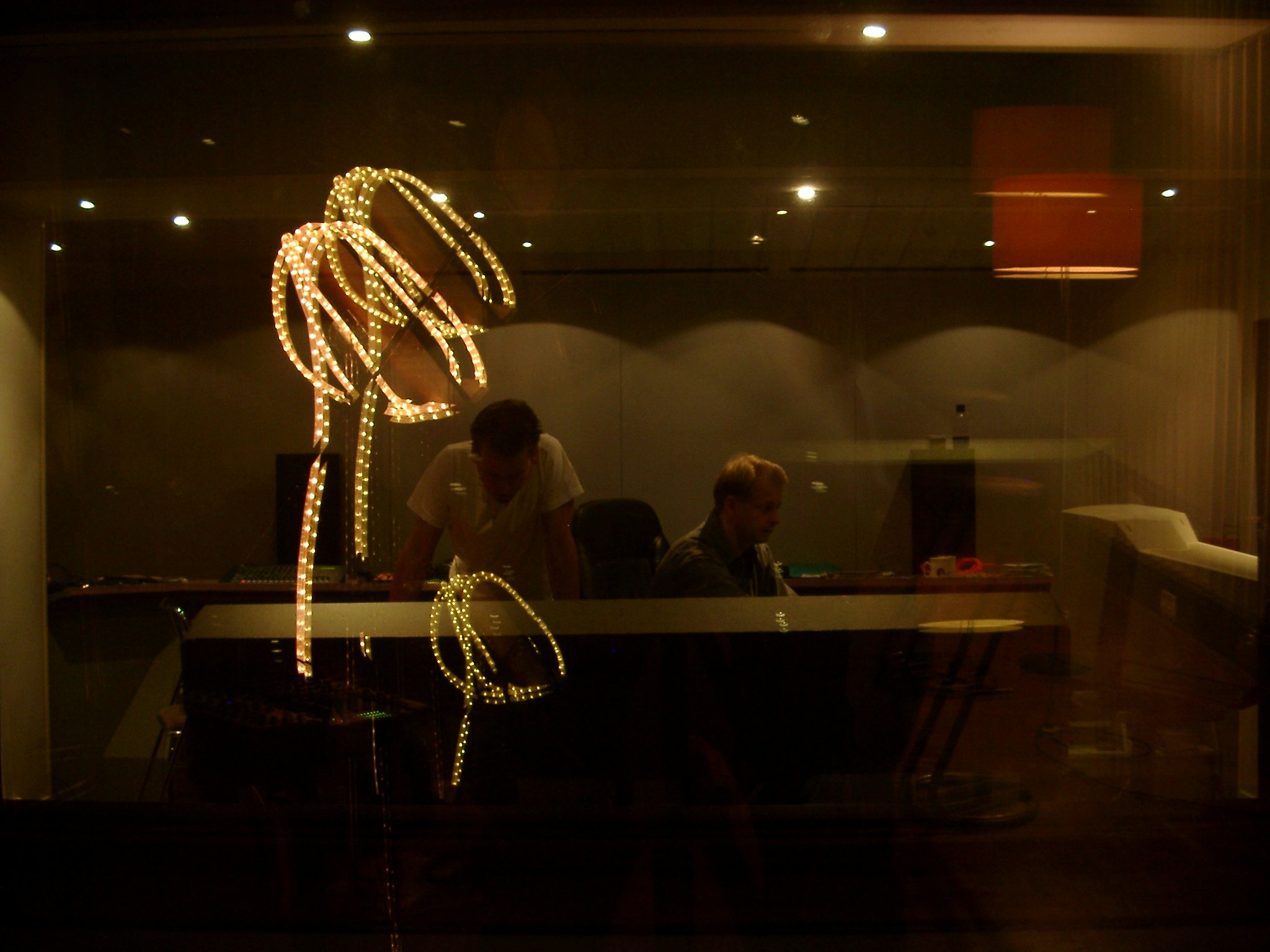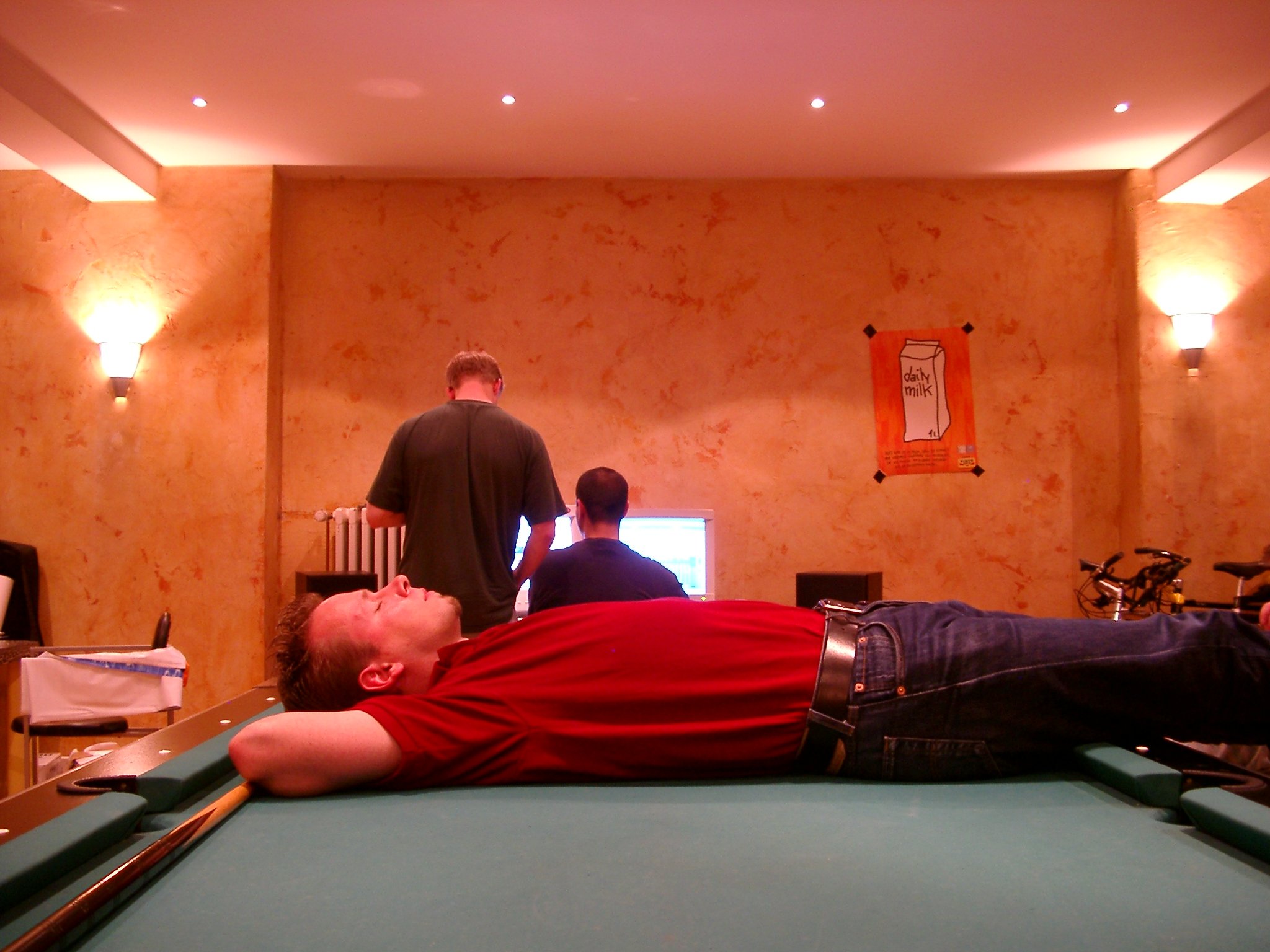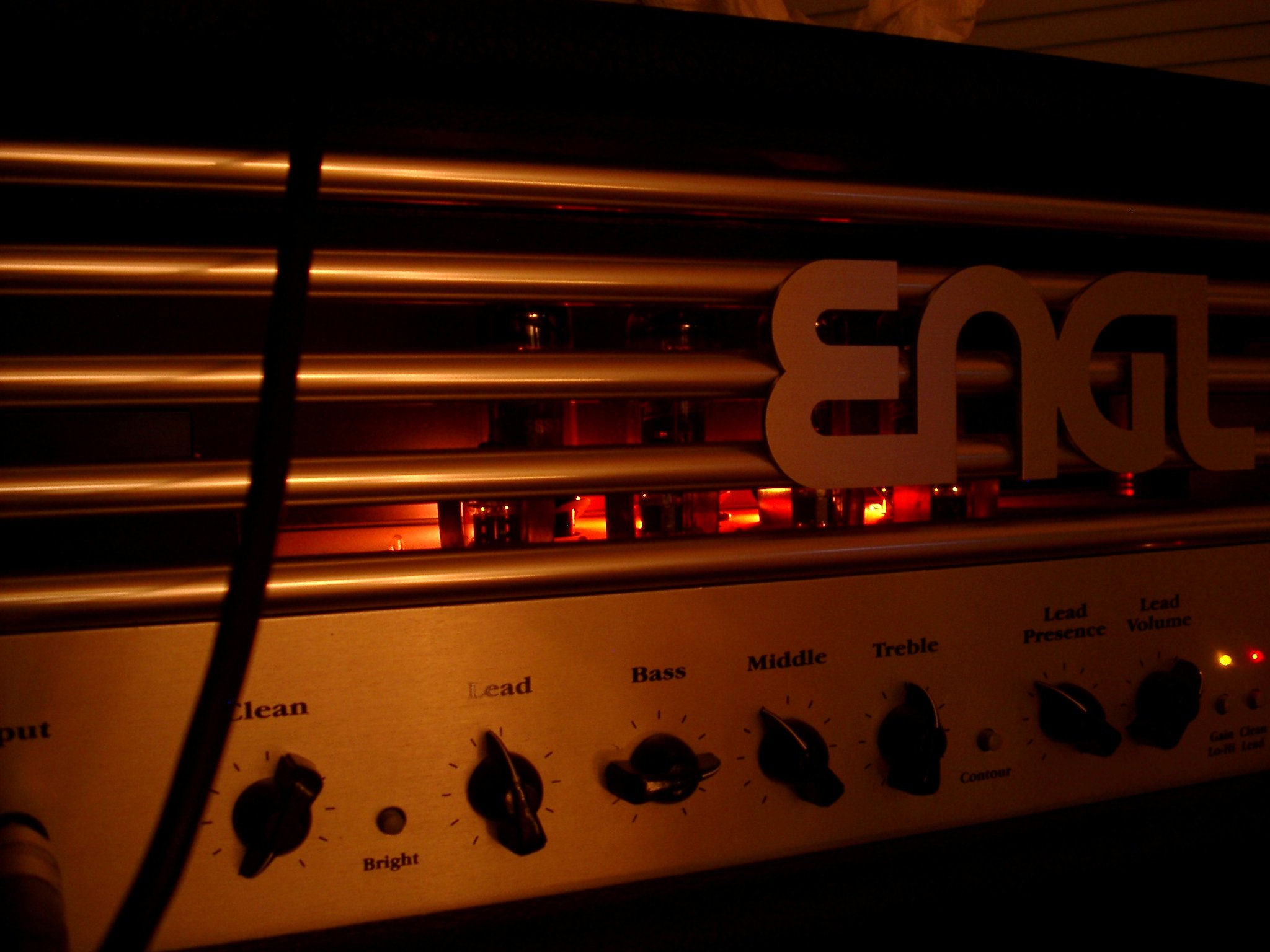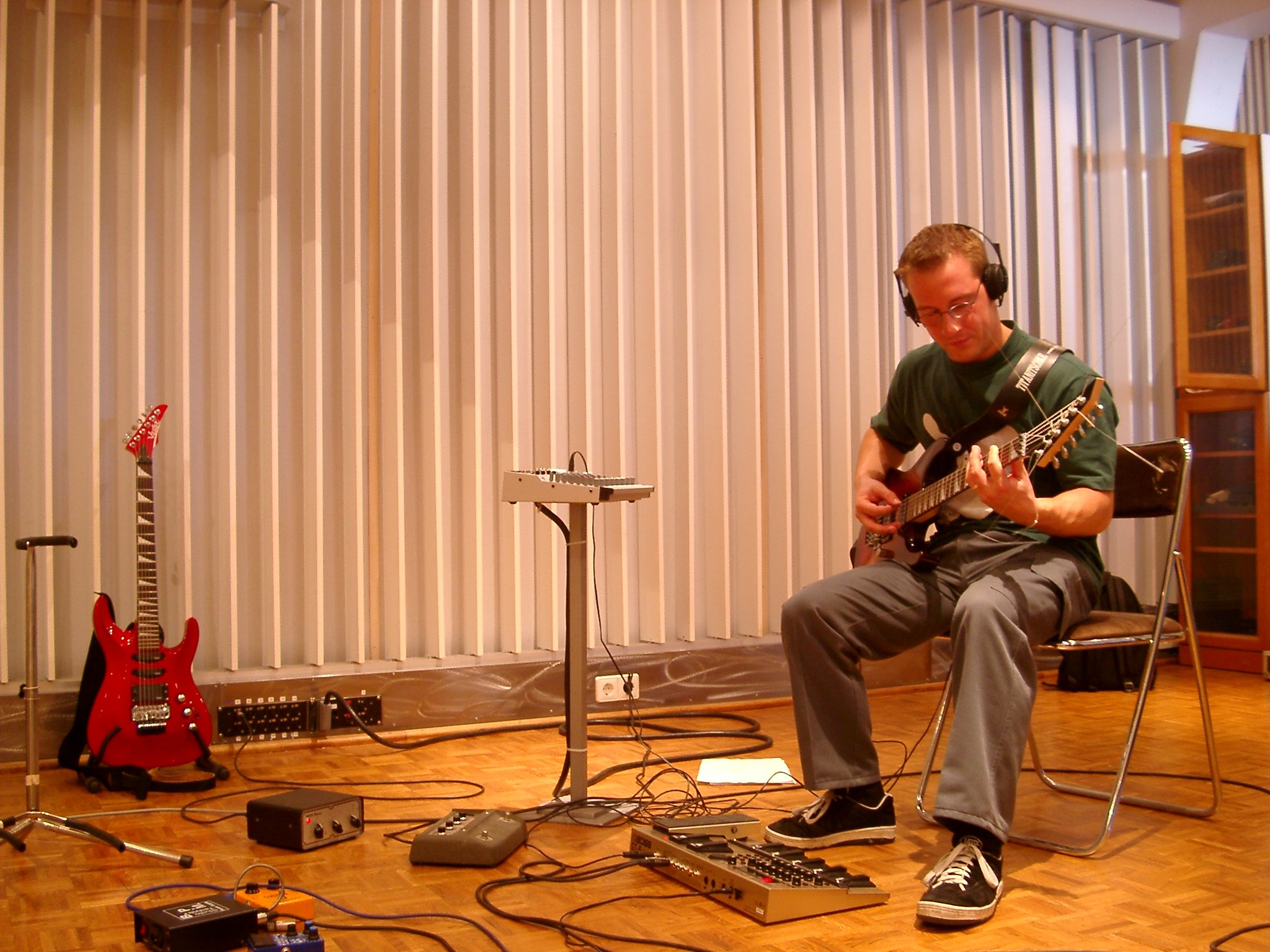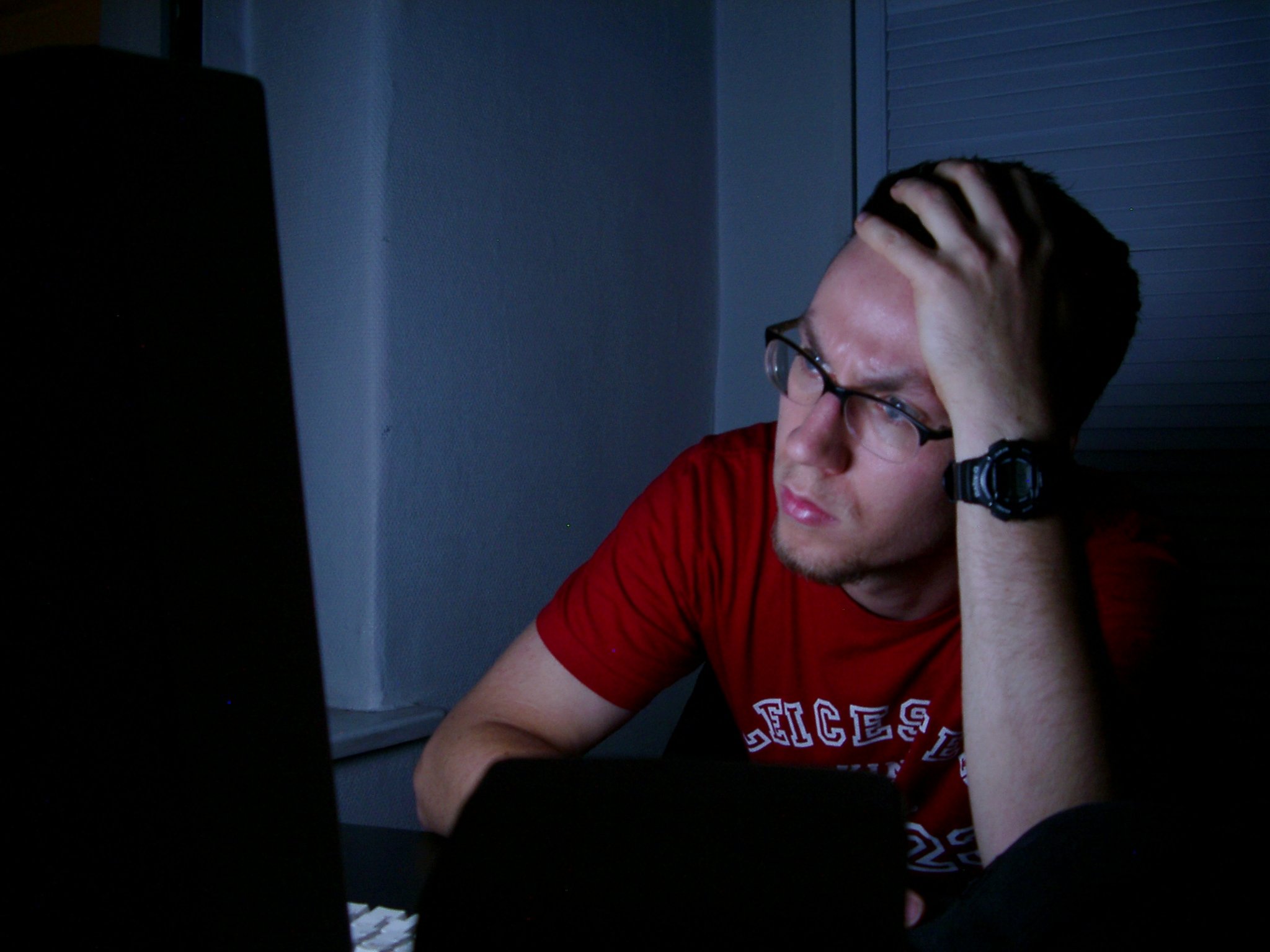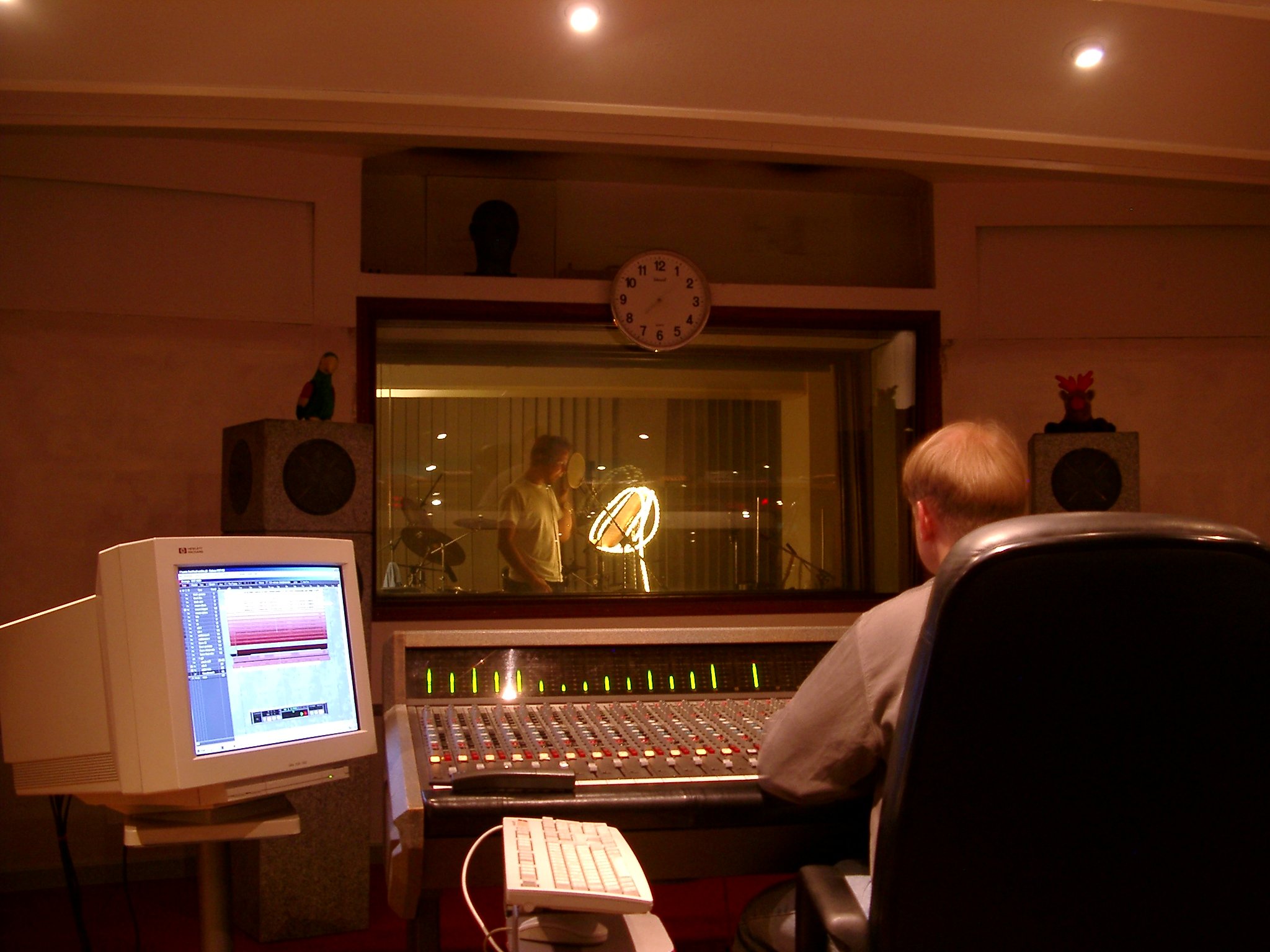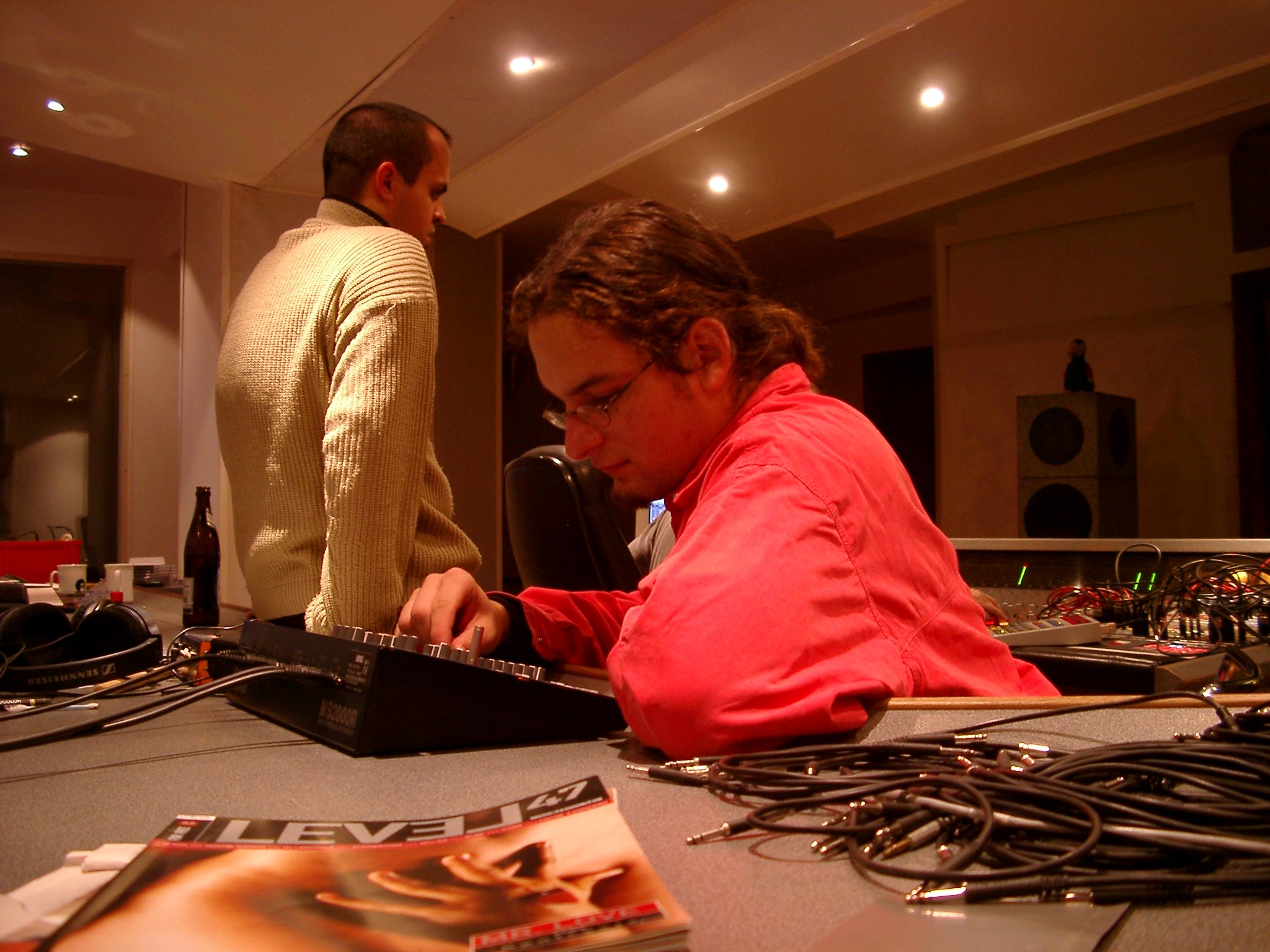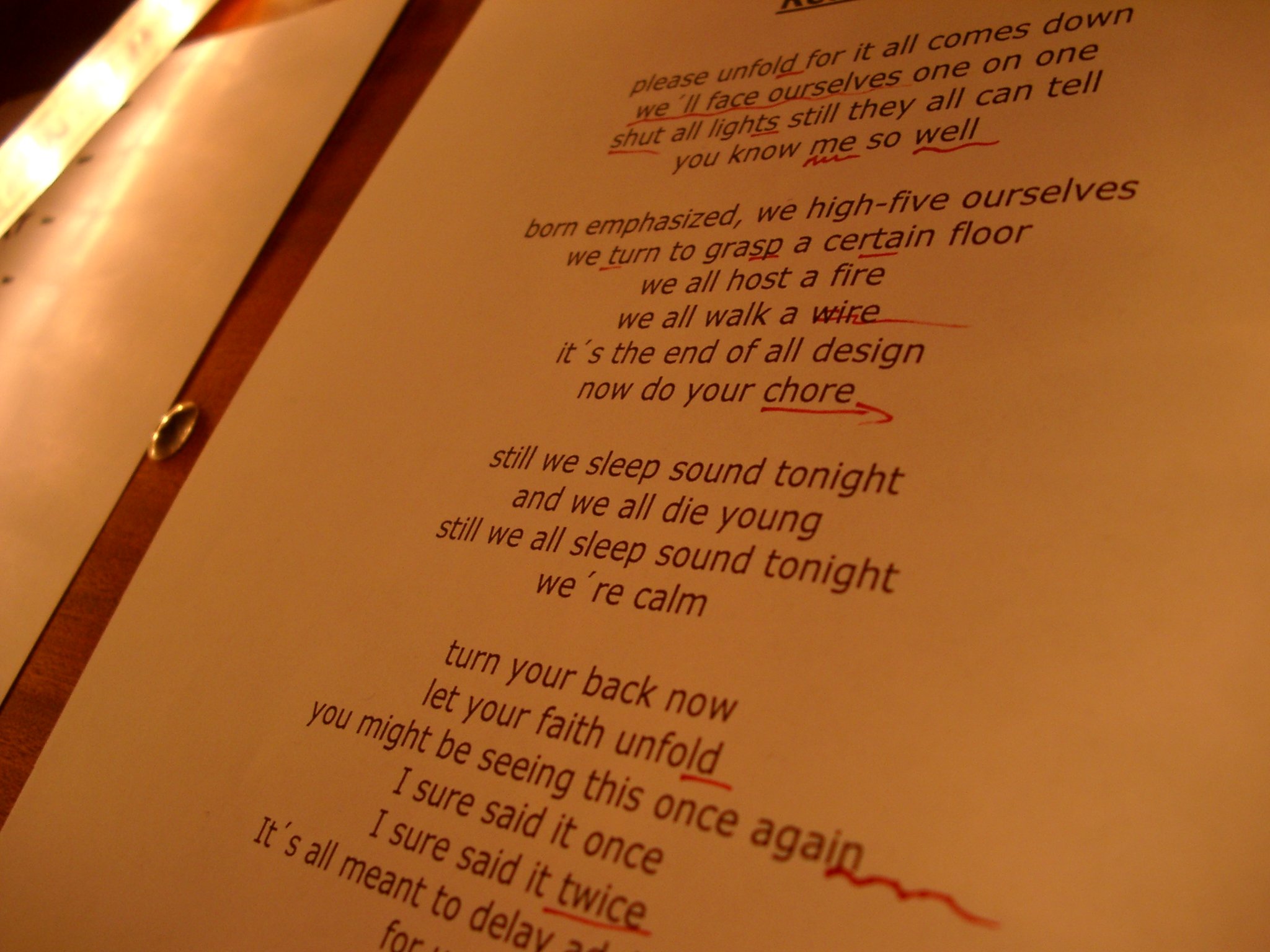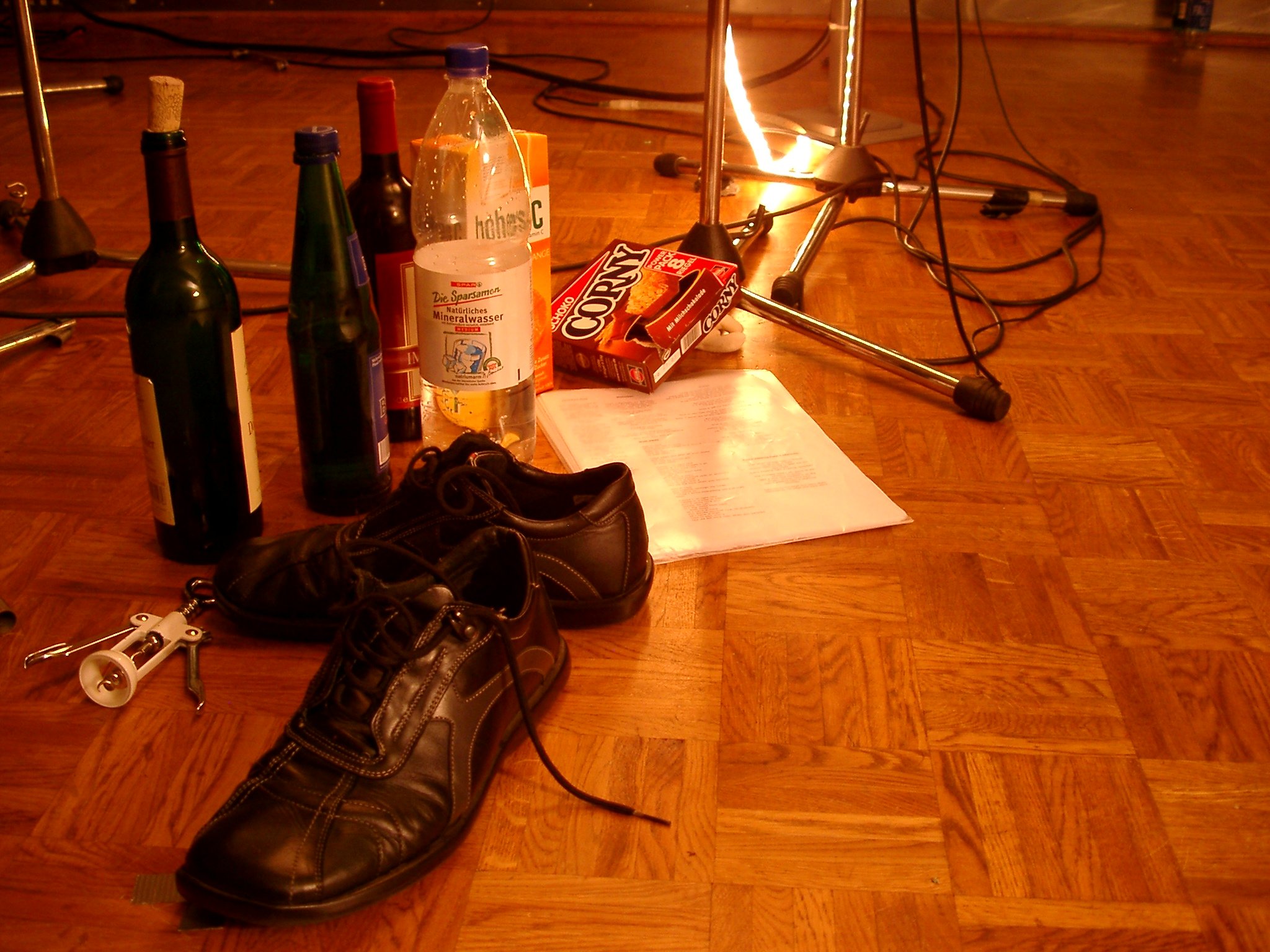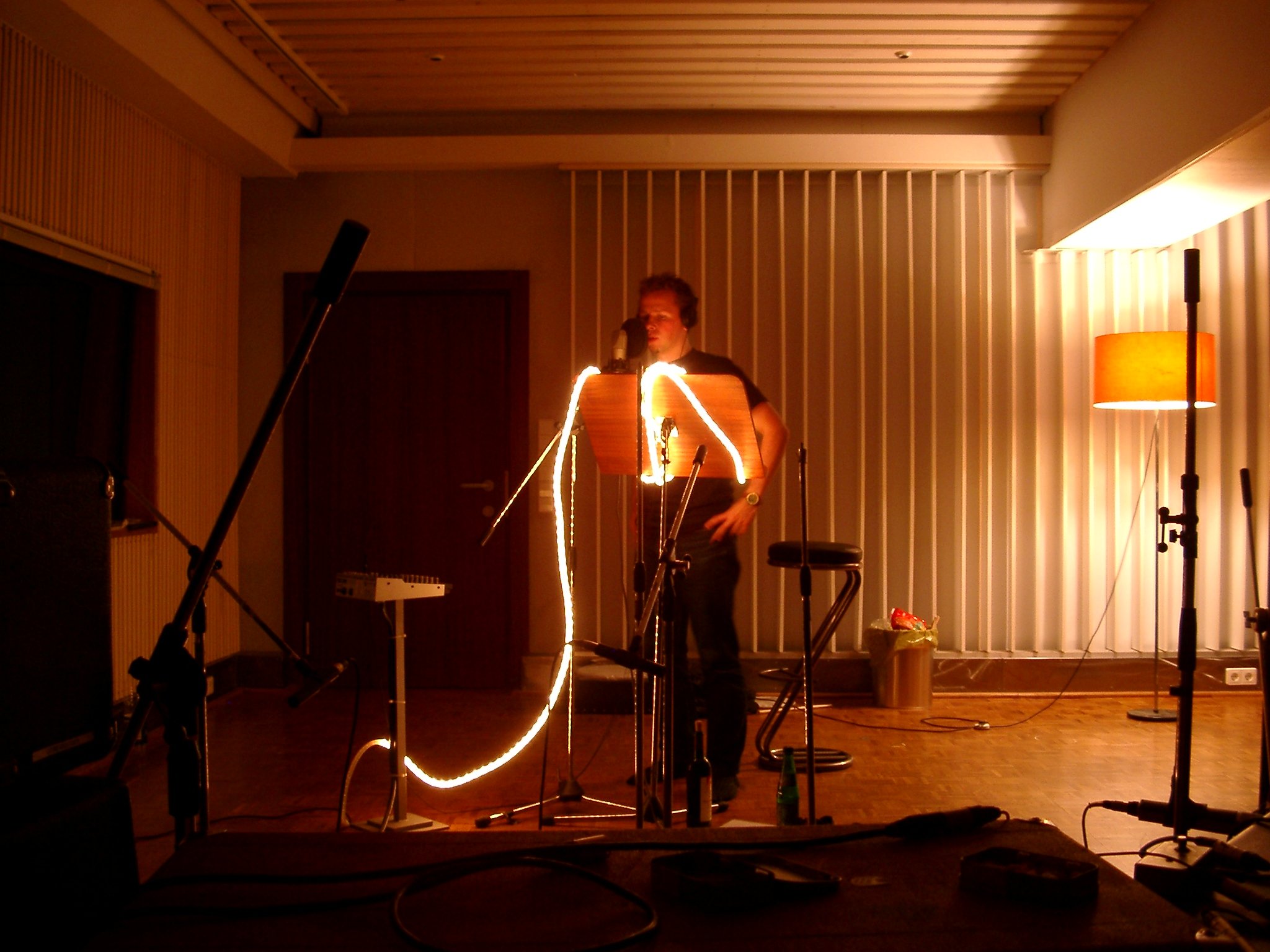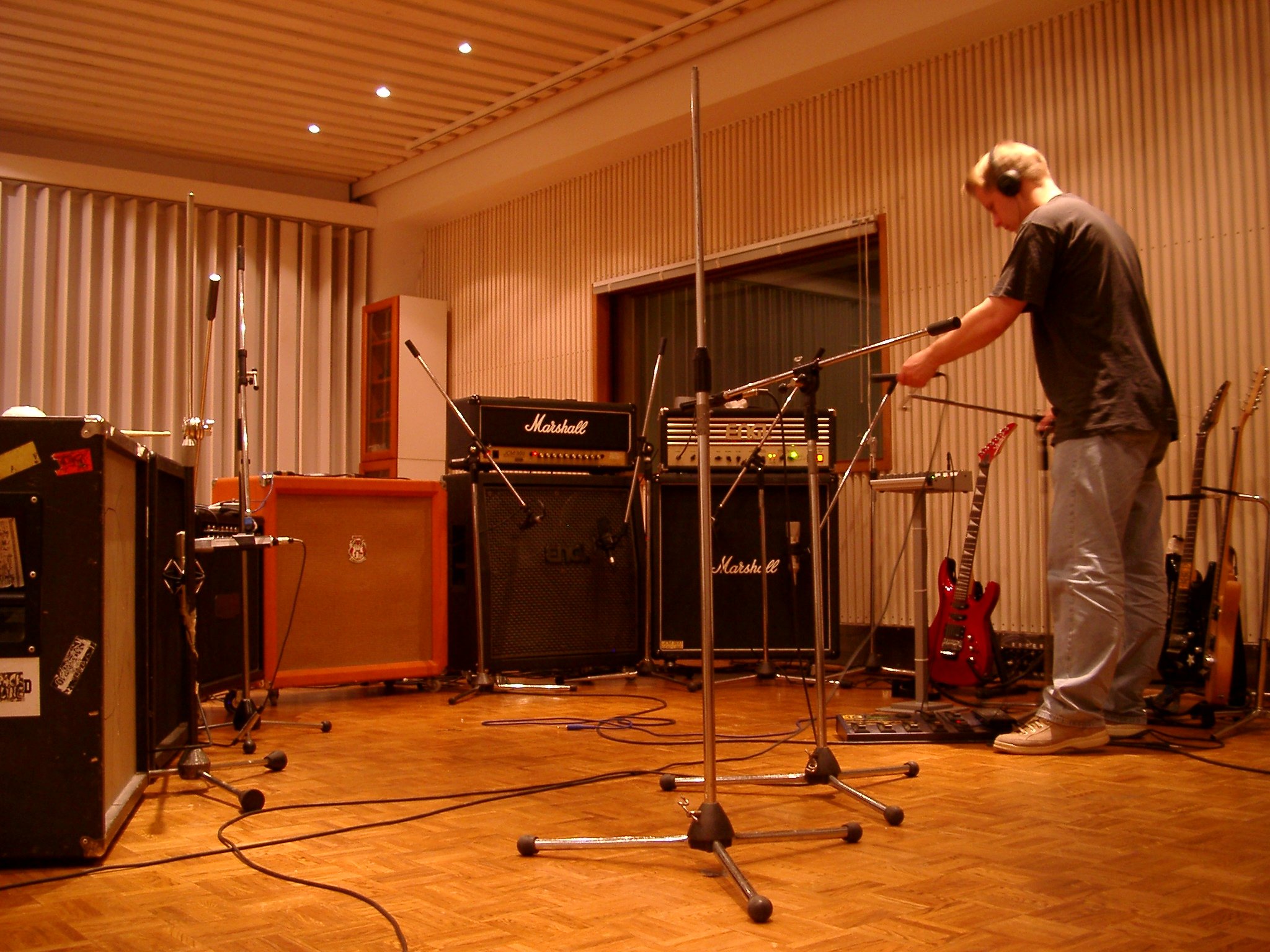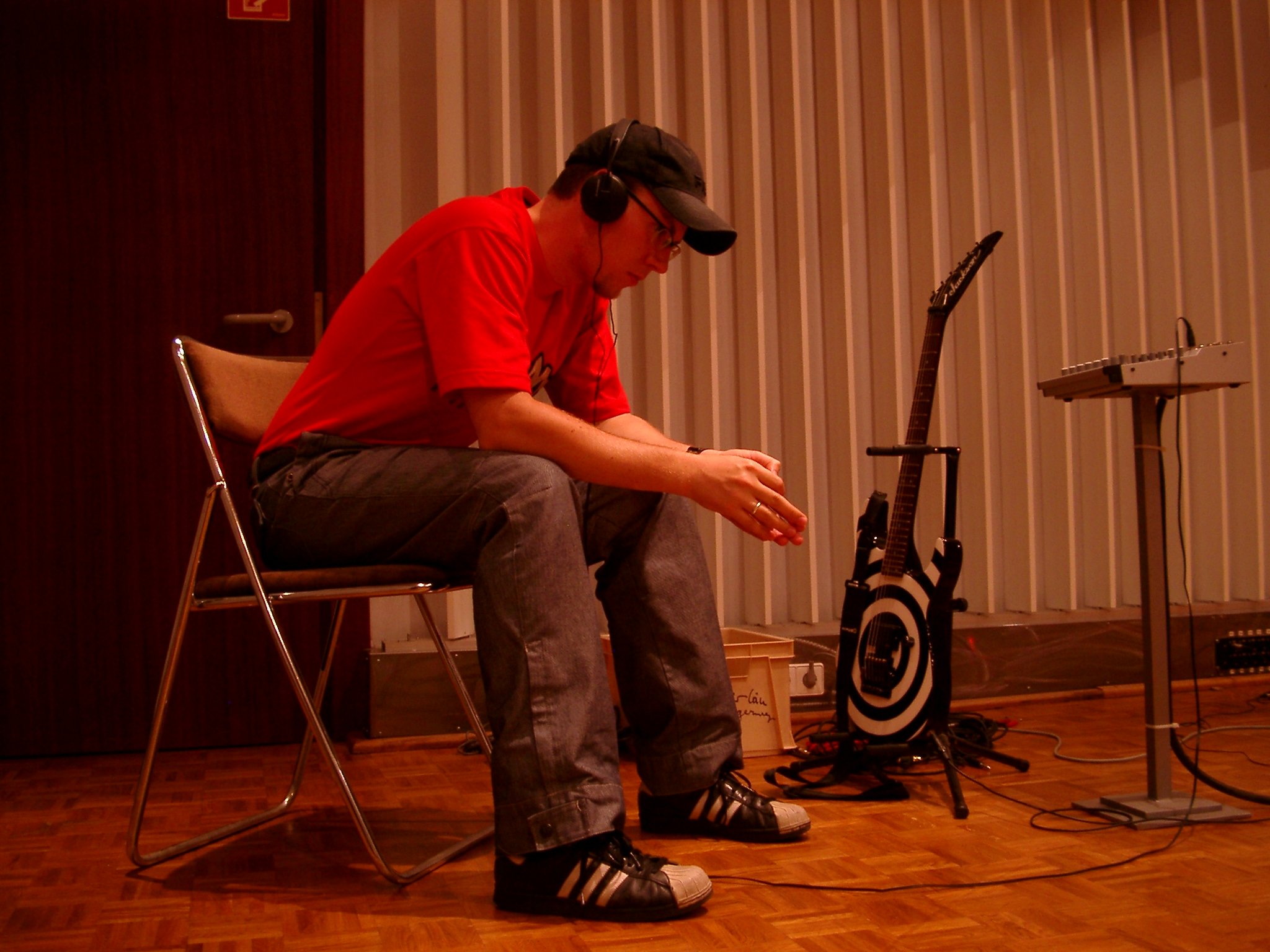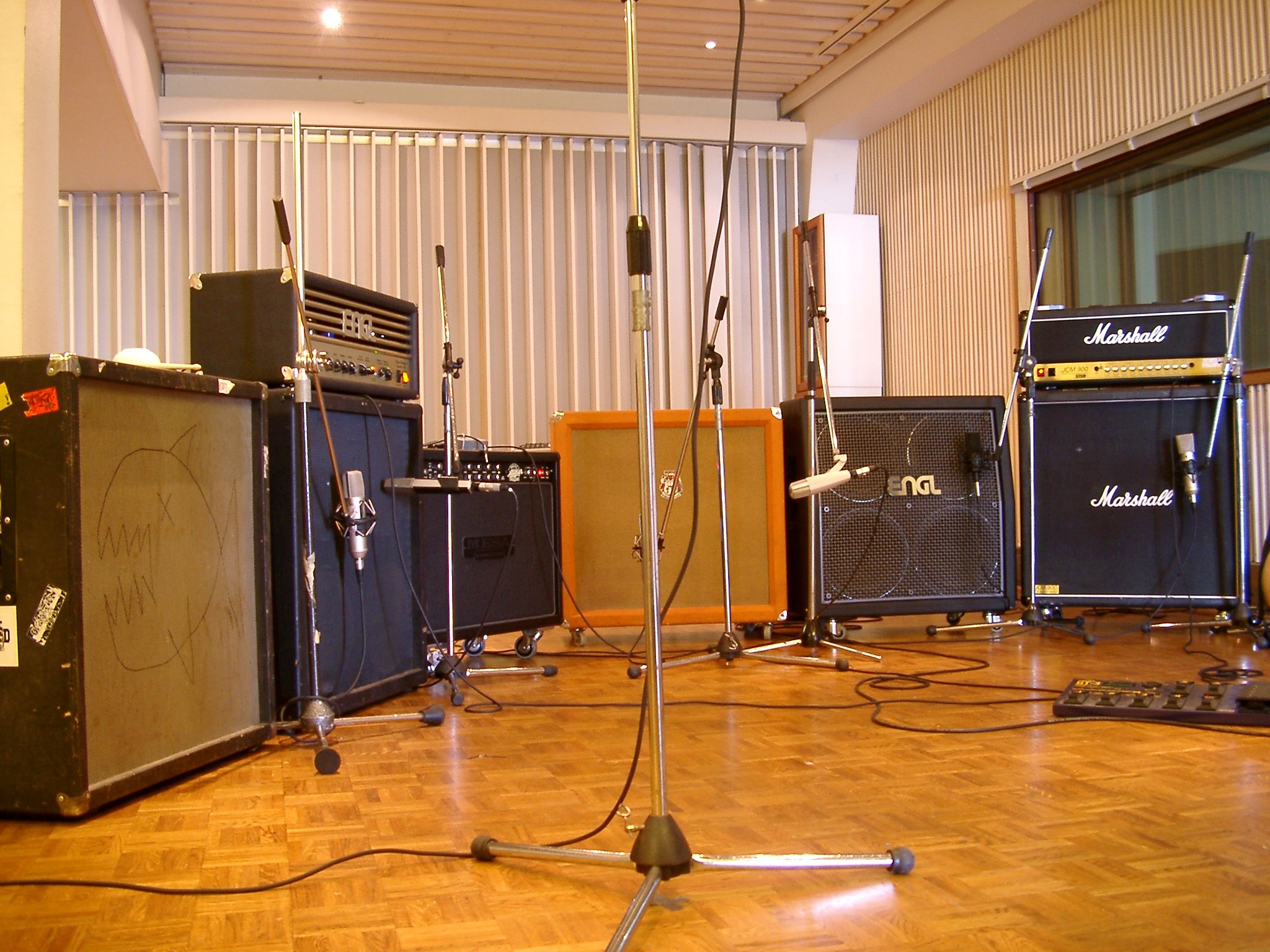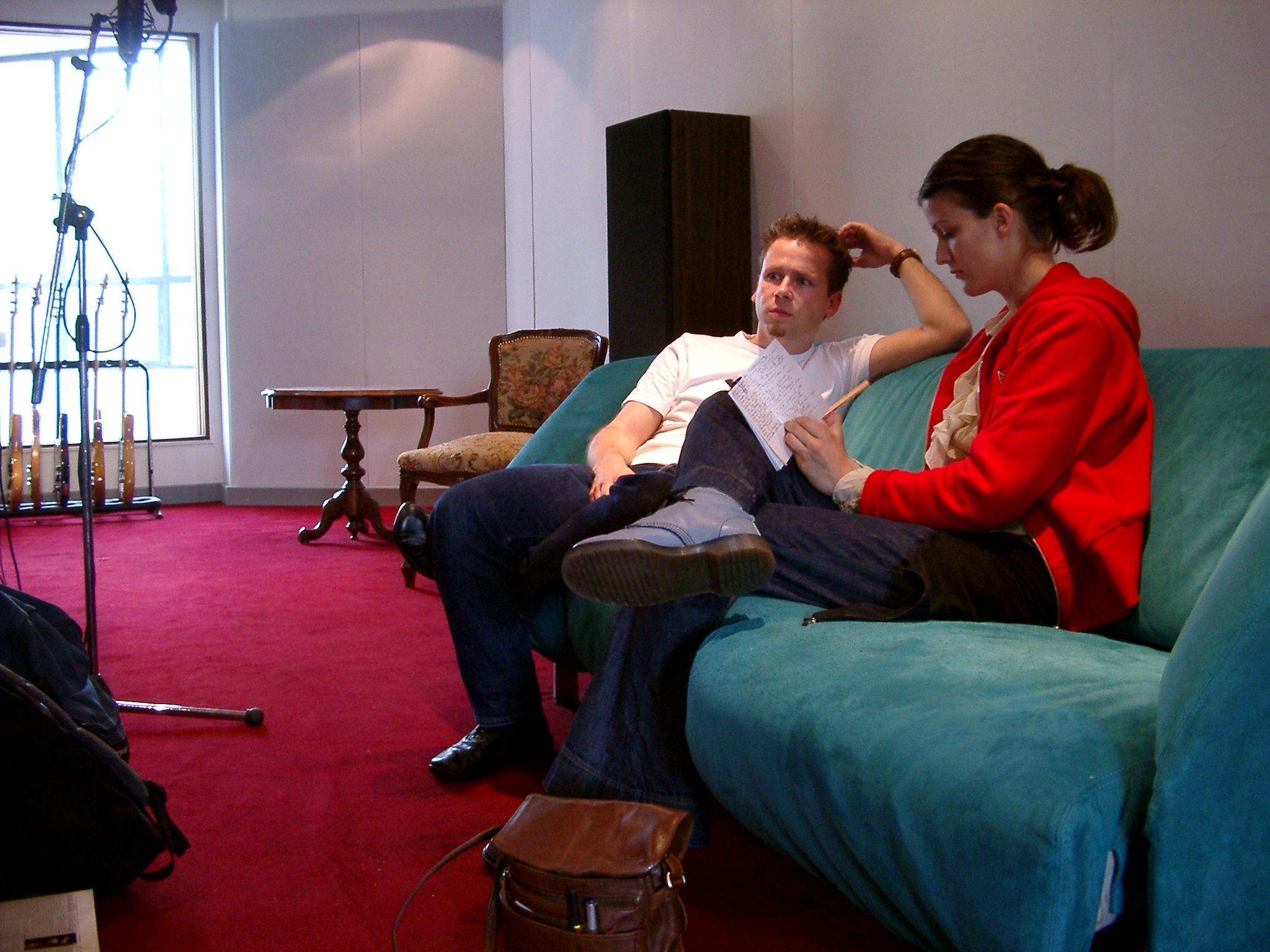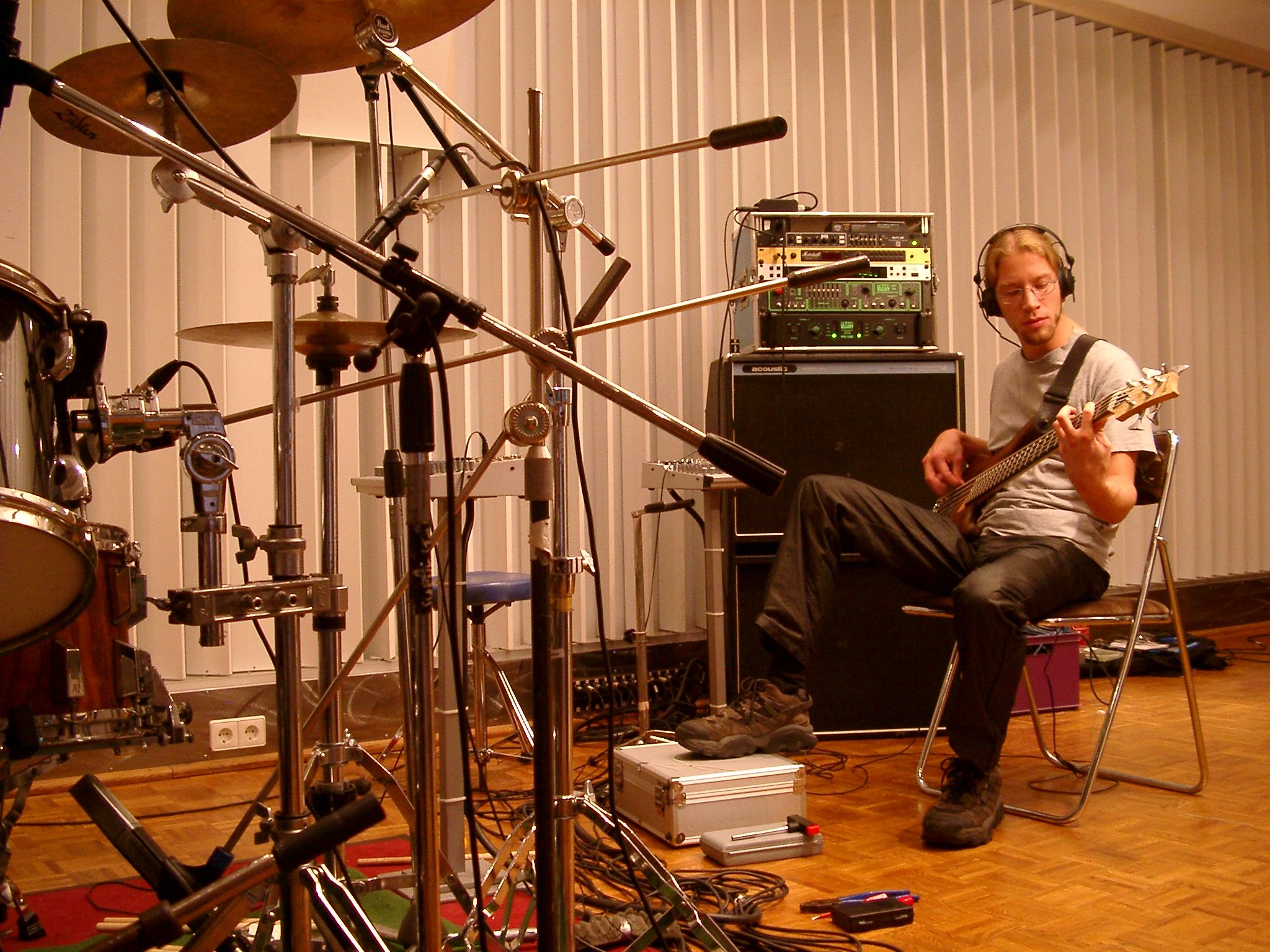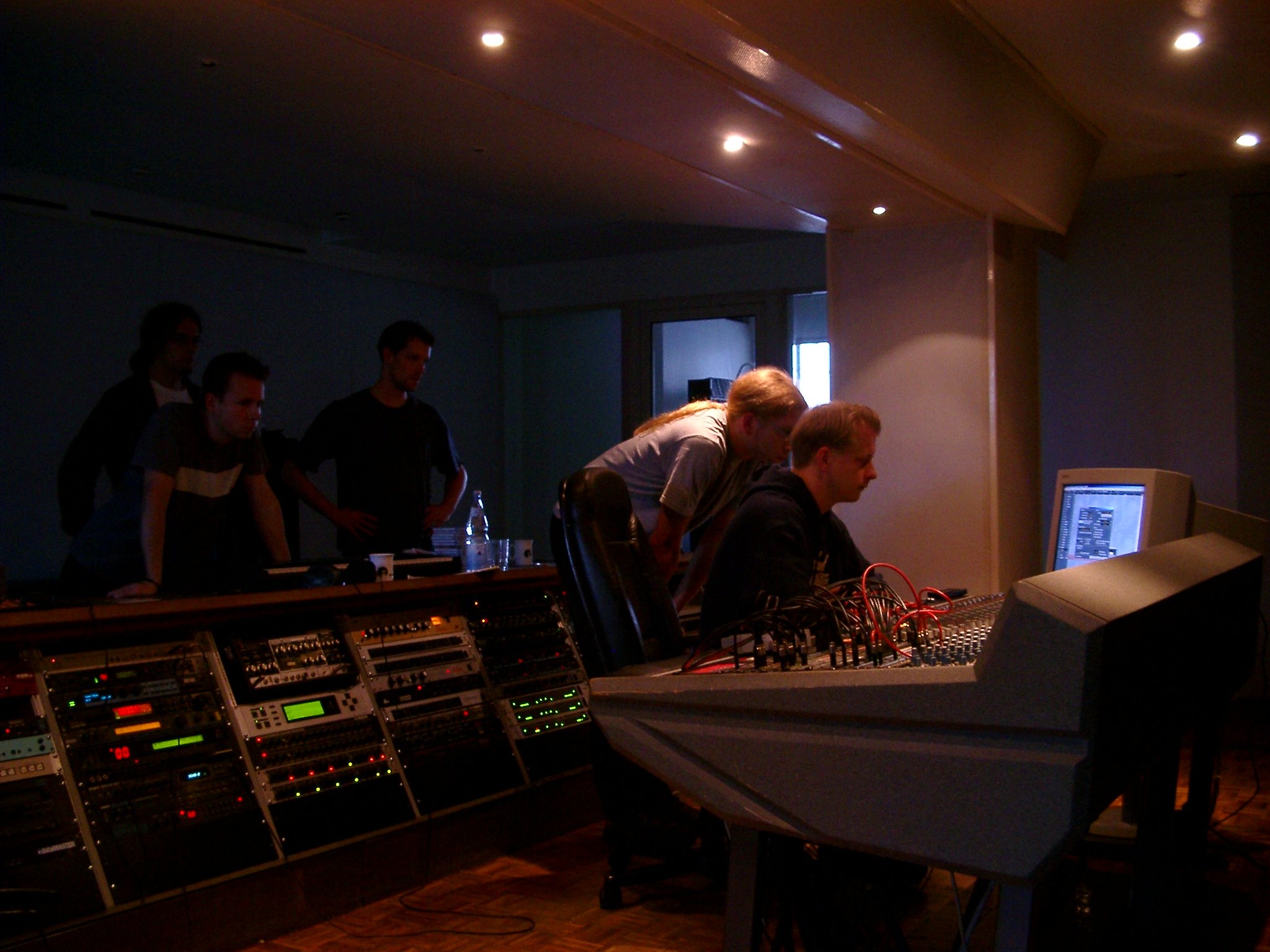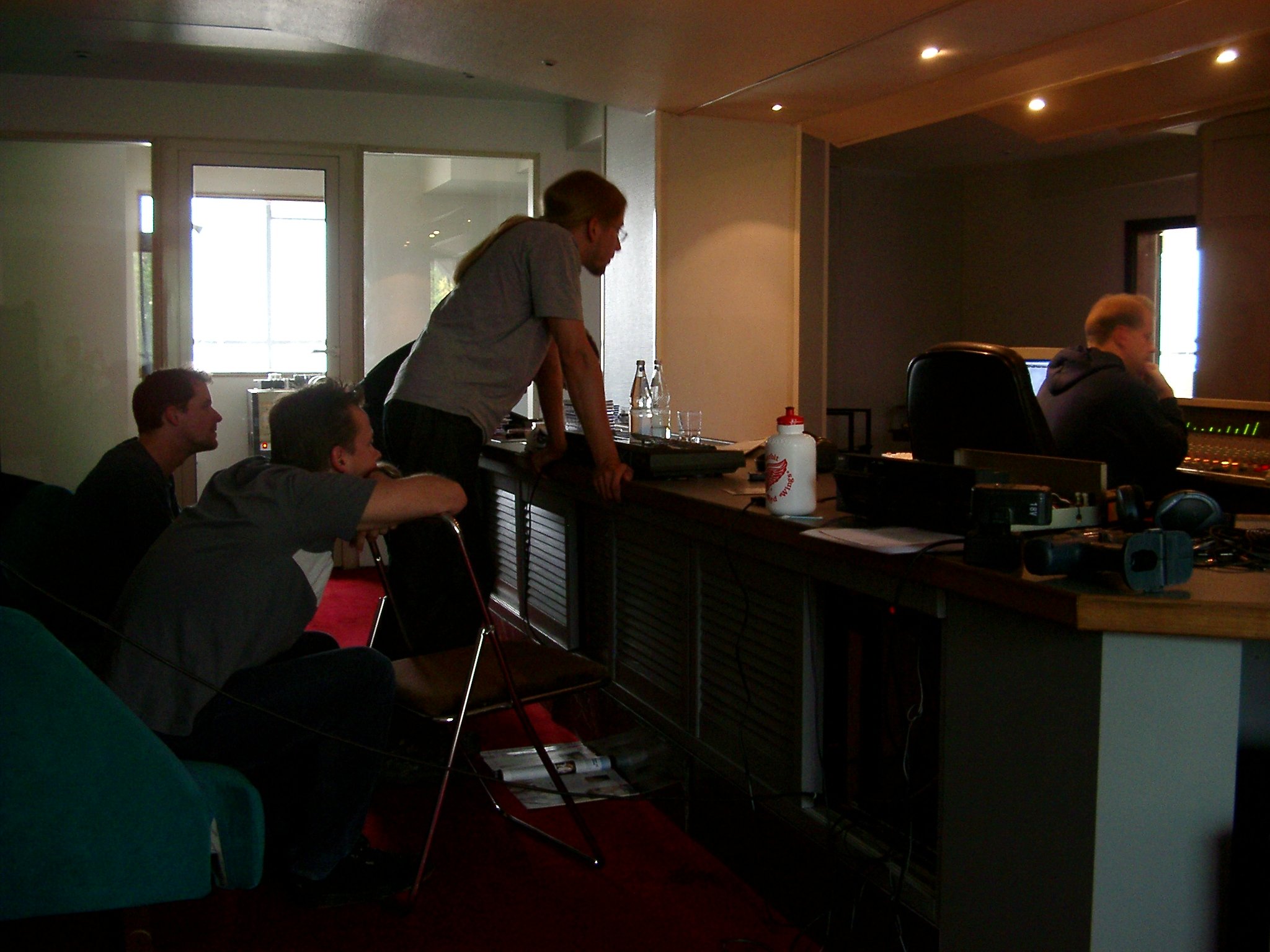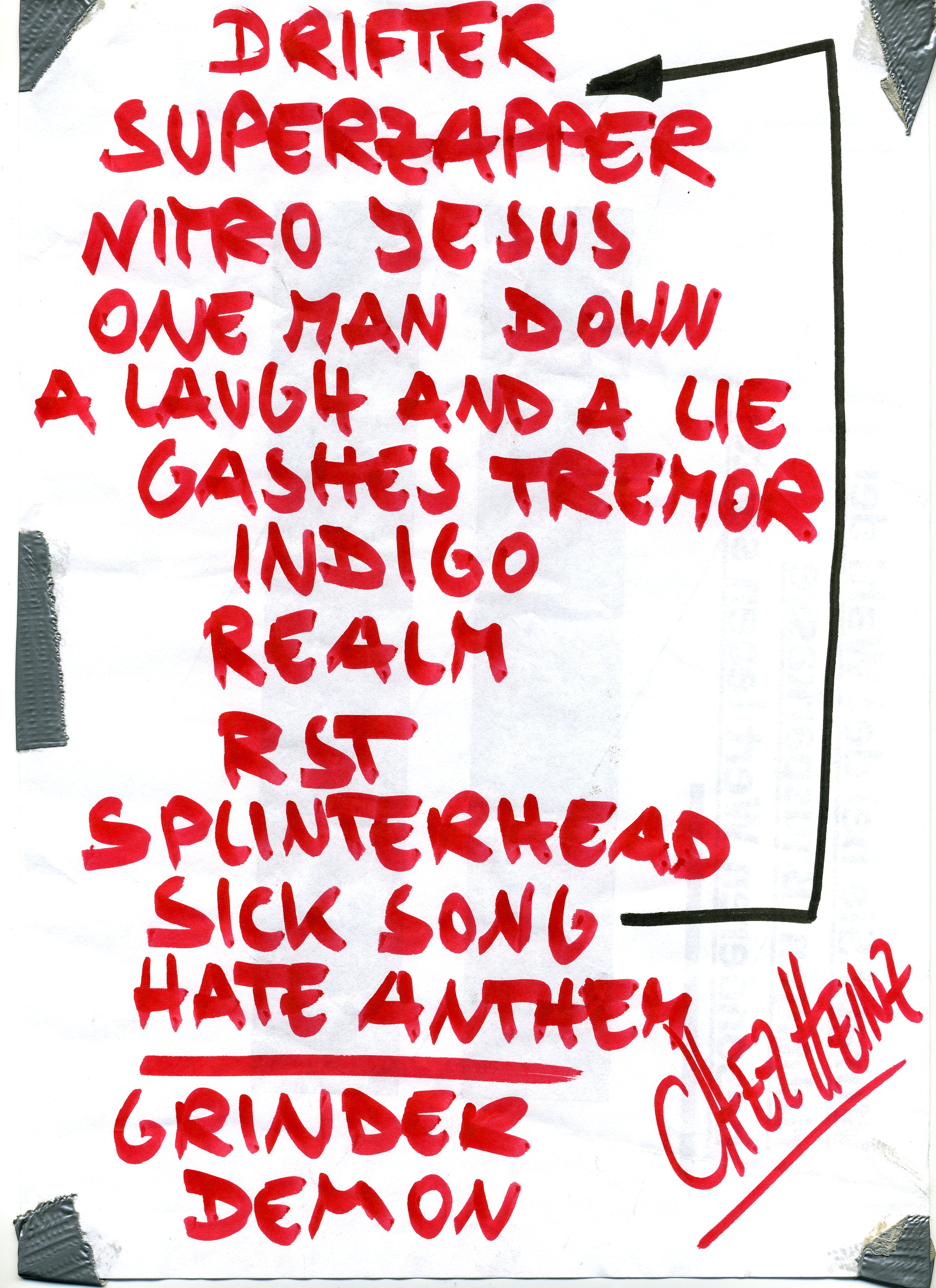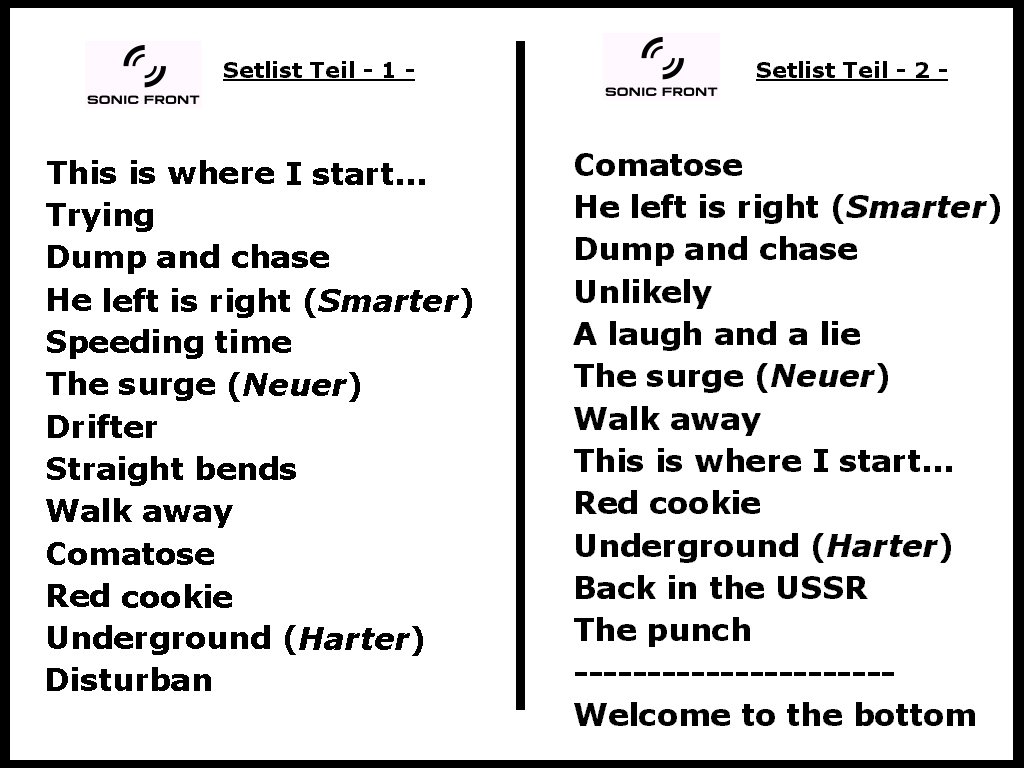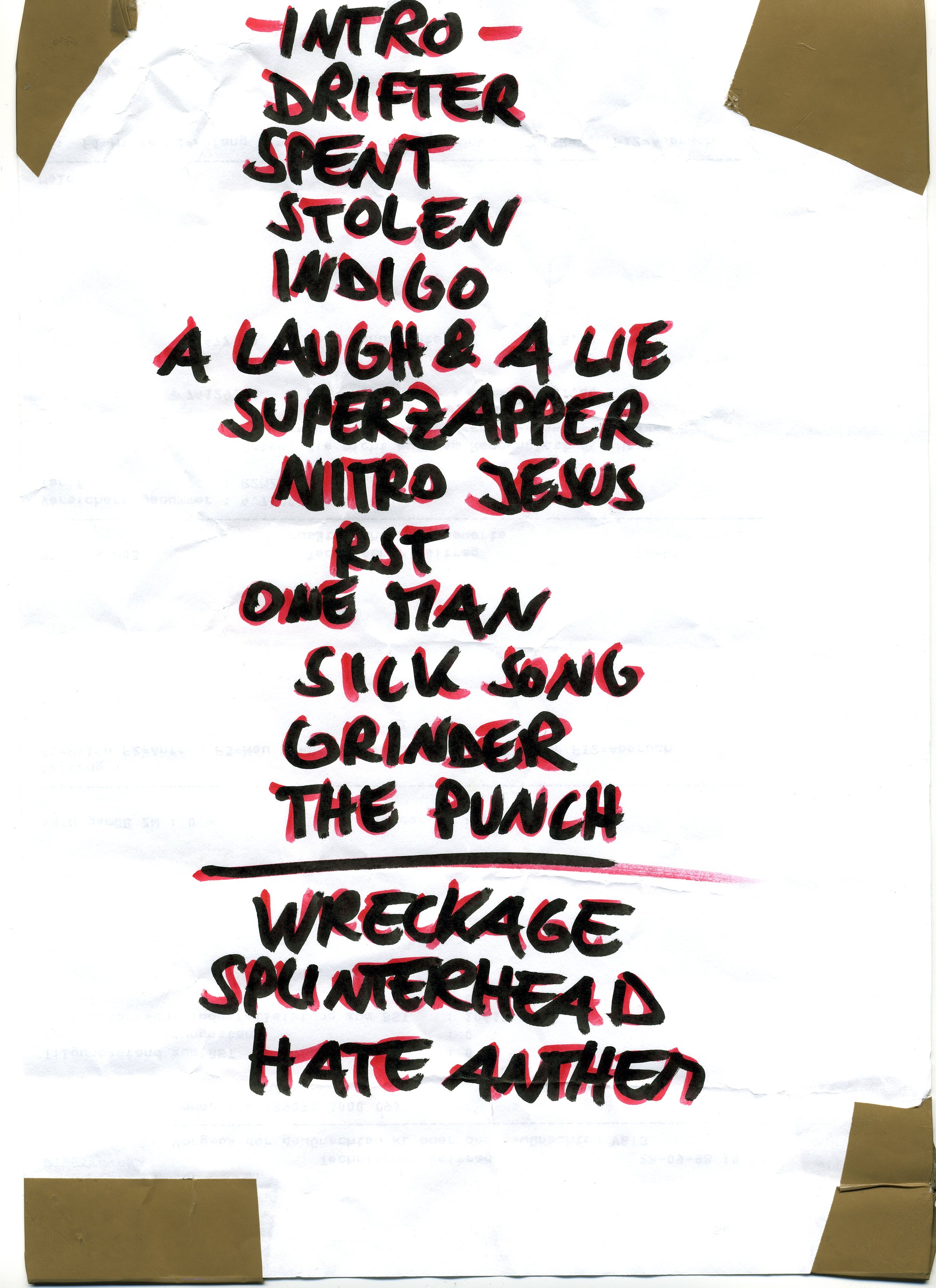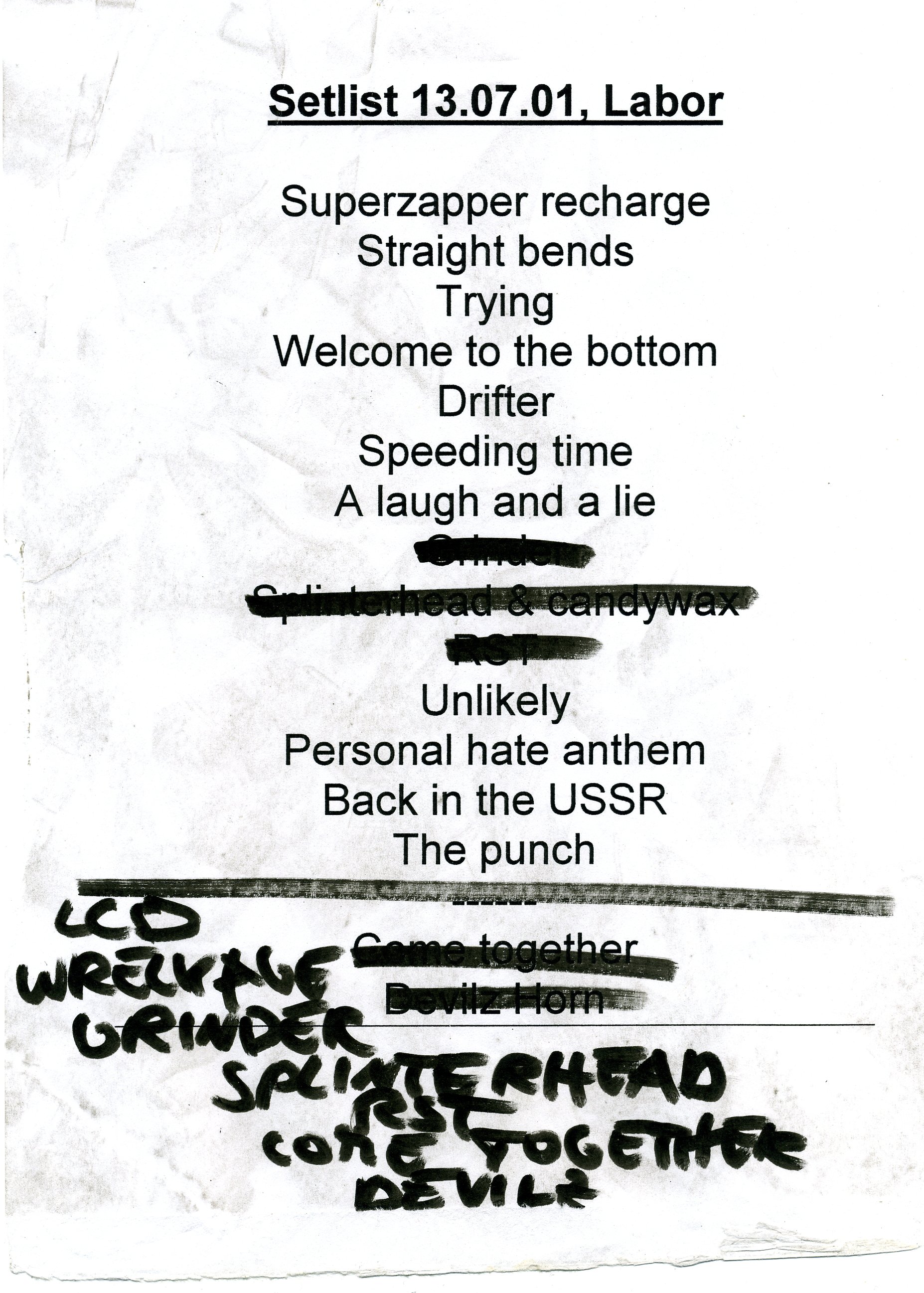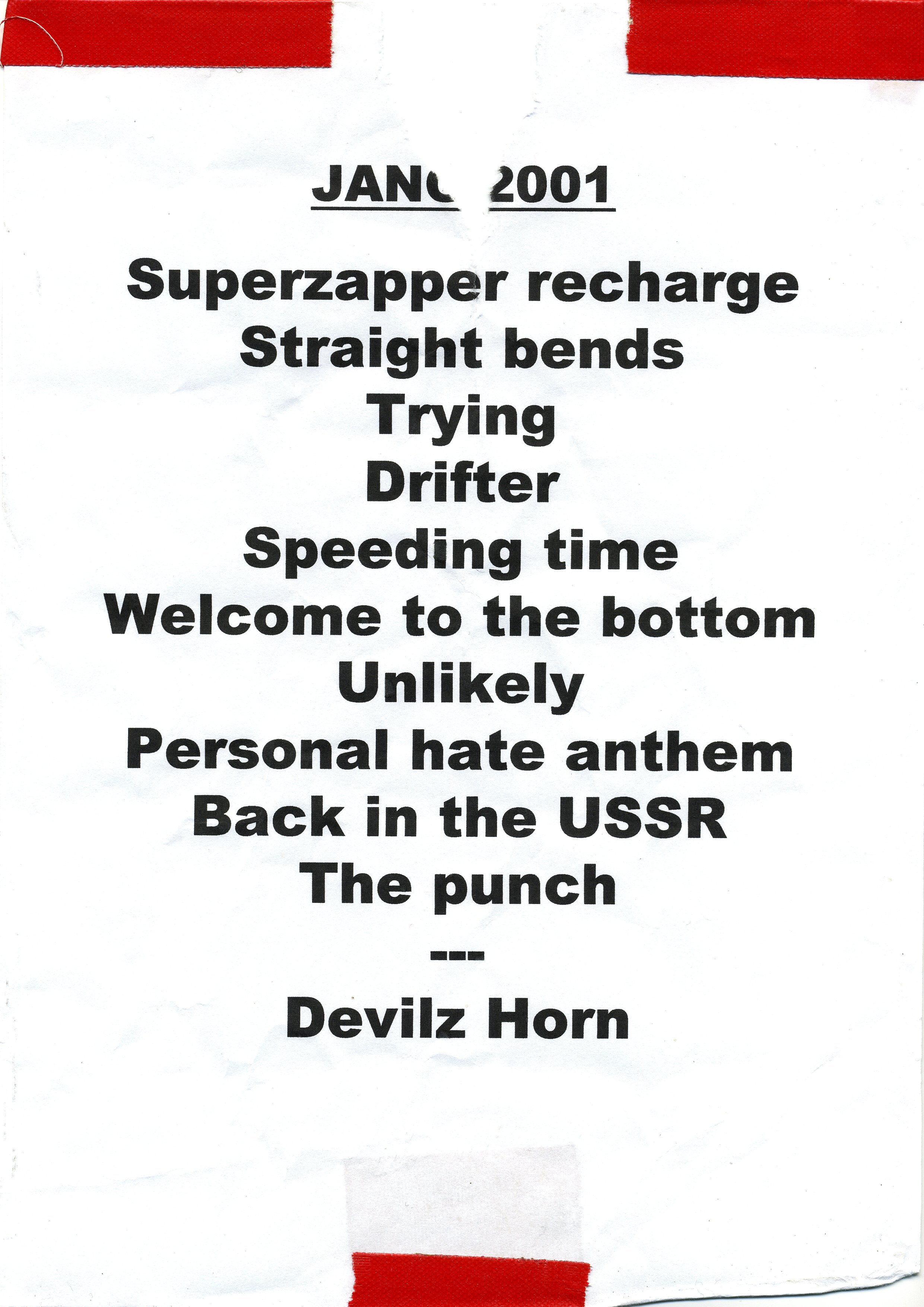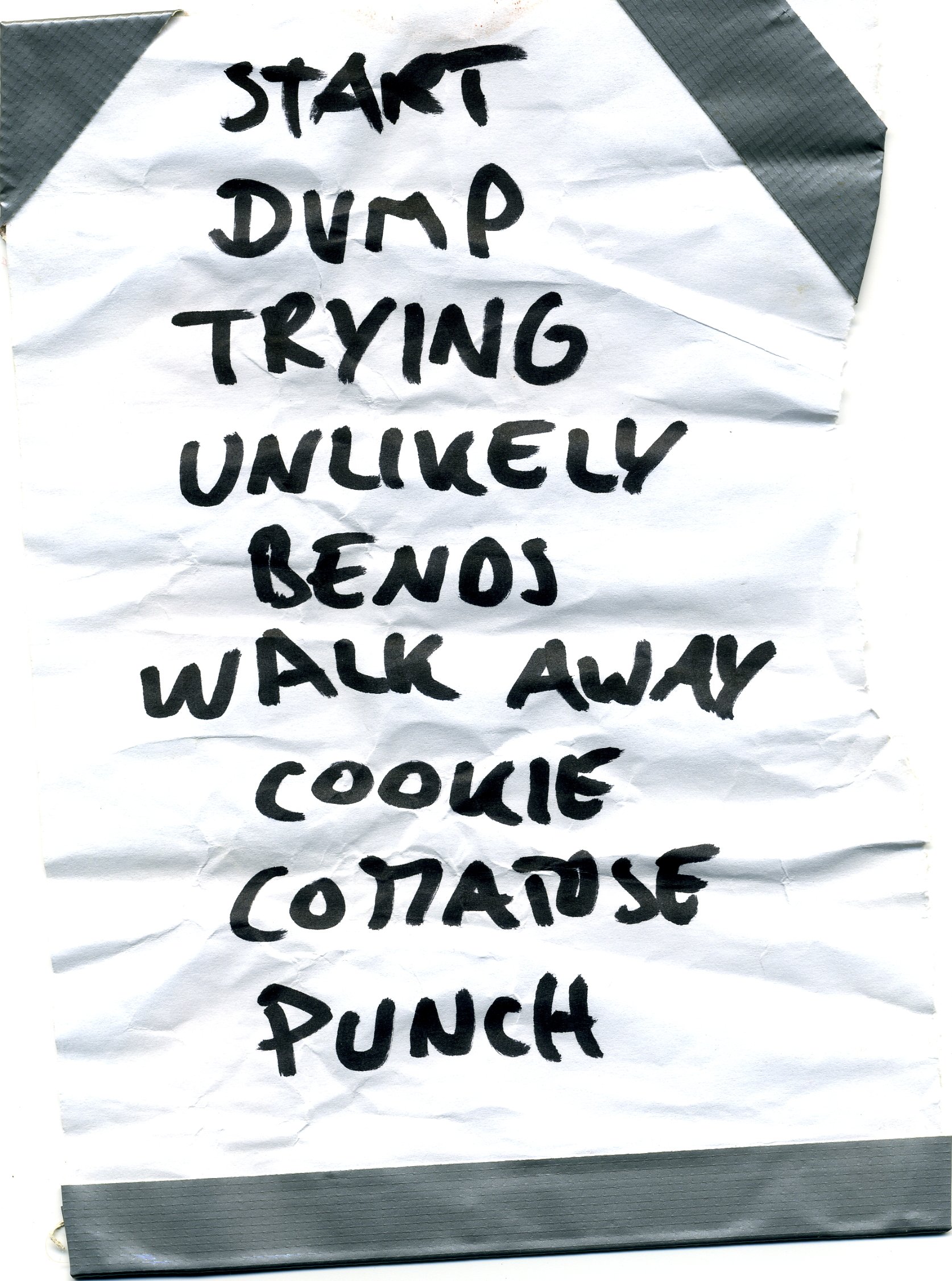“This is not about photography. And it is less about me. Then again it is a huge part of me and it connects several dots that have lead to my photography and my artistic expression. At the least this is highly personal.
In loving memory of my friend Christoph Renne (1976 - 2004) and our band SONIC FRONT (1993 - 2007).
The story and why it has changed a few lives.”
Sonic Front (2001 - official band promo photo by Matthias Hinze)
- S O N I C F R O N T -
a band that once was - and much more
Teenagers go to school together and form a band. Has happened countless times worldwide. I was one of those teenagers. I was 18 years old and it was the year 1993.
This is my personal story of a band that has changed my life. And it is the reason why every couple of months I do wake up from a dream where I am on stage with my Sonic Front bandmates. Where we perform a song (often times none we ever played or wrote, so I wake and instantly think “I need to write this down, this sounds so great”) and I look over to my friend and guitarist Christoph who suddenly is alive again and rocking, until I wake up and realize: it was just a dream.
Since most of Sonic Front had disappeared from the internet several years after the death of Christop Renne and the release of our final album “pieces”, I always felt like I wanted to have a space which remembers Sonic Front and him. One of the many things I do remember from the long conversations I did have with my best friend before he died was: “I do not want to be forgotten”.
Christoph, be assured: you will always be remembered!
Founding years - from dead end to pale blue stones
It was in 1993 when class mates Christoph Renne (rhythm guitar), Oliver Weinitschke (lead guitar), Sebastian Lindner (bass) and Kai Hornung (vocals), together with Garbsen school mates Arman Gregor (keyboard) and Tobias Wachner (drums) met to jam together. The teens shared their passion for loud rock and metal music and tried covering songs as “harvester of sorrow” from Metallica, “ember´s fire” by Paradise Lost or “Are you gonna go my way” from Lenny Kravitz. Yet, from the get go writing their own songs was what got the boys excited the most and so they did start with song number one right from the first jamming session.
live at their 2nd gig in Garbsen, 1994 (photo: unknown)
Their first rehearsal room was in the basement of the house of Christoph´s parents. But that lasted only 2 or 3 jam sessions. Metal sounds do not fare all too well when distorting the otherwise quiet surrounding of a fine residential neighbourhood. The band then was allowed to practice in their school Johannes Kepler Gymnasium. Their early band name being: Dead End. They played their first gig inside the school halls on May 31, 1994. A loud and quite dissonant experience. In summer that year they decided to change their band name into Sonic Front. A name that described the heavy sonic wall their music was supposed to build, as Christoph Renne described back then. In October 1994 Sonic Front had their first ‘real’ public gigs in and around their hometown of Garbsen. As was with many school bands during that time it was easy to draw a large following from their school mates, so the band started playing in front of crowds of 200+ people right away, stage diving included. Their sound was raw and clearly influenced by metal bands like Metallica, Pantera, Prong and Faith No More. Not to everyone’s delight. Kai: “I remember after one of our gigs some guy from the audience came to me and told me to not leave the venue, because some angry boomers who hated our music wanted to beat us up after our show.”.
“We didn’t really know what we were doing and had no intentions of being rock stars. Then again we were teens and the sky was the limit. We just did what felt right and had a blast! ...and secretly dreamt of being rockstars.”
1995 saw all the band members, except for their younger drummer Tobias, graduate from school with their Abitur. As was law in Germany back then the band members either had to serve in the military or do community service after graduating from school. But with none of the band members leaving town they stayed together and started getting their first gigs in the nearby capital of the state of lower Saxony: Hanover. For the young men that felt like a major step. “We are making it into the big city” was the enthusiastic response of the guys. They got their feet wet with their first contact with the local music scene. Yet, they had to learn that many bands fought for attention and fought for gigs in the many live clubs back then. Sonic Front was just one of many inside a lively 90s music scene. And they were still searching their own musical identity.
1996 - ‘pale blue stones’ - the first demo. Later not mentioned in the official band biography anymore.
1996 they recorded their first demo “pale blue stones”. “We felt like heroes back then. But truth be told, the recording more than not revealed the things we still needed to improve. First and foremost my singing!” Kai remembers. “It is with a reason we later never mentioned that release in our official discography. Yet, the experience of recording and having a weekend as a band, sleeping on the floor of a Gymnasium just to be ‘all in’ was invaluable.”.
In 1997 they parted ways with drummer Tobias Wachner and found a new drummer in Florian Bewer. During that time first band members moved away from Garbsen to live in the nearby 530k citizens town of Hanover. So it was logical to move the rehearsal room from outside of town (a cheap, yet, dark and really run down barn where electricity could fail any minute) to a new home: the Schalander tower of Herrenhäuser Brewery. The band would stay there to have their ‘homebase’ until their band´s end. In the same year Sonic Front got booked to play a gig in one of Hanover´s most popular and largest live clubs: the Capitol. The gig was played in front of a much smaller crowd than its 1,5k capacity, 350 people supposedly. And looking back it was surely too early for the band and their skills to enter a stage like that. Still the band was rolling and ambitious to write new songs, improve their songwriting and eager to play in front of new people. It was until winter of 1998/1999 when the band took a big step forward and matured from a band of school mates to a band that wanted more than just jam away. They wanted to get serious and so they did.
Live at the church convention, Hannover, 1996. “We were young and wild. We thought it was funny to play our heaviest songs to the audience of that gig. During “splinterhead and candywax”, our angriest and heaviest song back then, I was screaming my lungs out and rolling around stage like a mad man” remembers Kai. (photo: unknown)
Ignited
The EP the band would later call their first ‘real’ release was recorded in their rehearsal room in Hanover, produced and mixed by Arman and Christoph (in the basement of his parent’s house) at the end of 1998. It was their first release that found a wider media attention and very positive reviews. Back in the day that meant mostly printed press features, as online was just starting to kick off and become a mainstream element (Napster just went online that very year). The main goal for the band was getting their cds of ‘ignited’ around. They soon sold their 600 copies and found themselves playing more and more gigs further away from their hometown Hannover.
Sonic Front during the ‘ignited’ era: Christoph Renne, Oliver Wenitischke, Florian Bewer, Arman Gregor, Sebastian Lindner and Kai Hornung (from left to right) - (photo: Sebastian Denz)
’Ignited’ shows very raw and aggressive songs such as ‘personal hate anthem’ which captured the wild dynamic of the band’s past. But it also showed what the future of the band sound would bring in songs such as ‘drifter’ and ‘darkness of your realm’.
Tracklist:
Drifter
Darkness of your realm
Sick song
Indigo (under your foot)
R.S.T.
Personal hate anthem
Sonic Front entered stages of pretty much all clubs in their hometown. The band matured and with it came conflicts and change. Founding member Arman Gregor told the band he would leave to work in other music projects and follow on with his academic career of becoming a doctor. The band found a replacement with highly talented Christian Hawellek, who took over on keyboards and seamlessly connected with the band. And for the second time in band history Sonic Front made a change on drums: They parted ways with Florian Bewer, who had been with the band since 1997, and found a new guy for the drum sticks with experienced and versatile Stefan Reese.
live at Schlachthof, Bremen, 1999 (photo: Silke Wagner)
Sonic Front live at Bei Chez Heinz, Hannover, 1999 (photo: Sebastian Denz)
The band felt like it was slowly finding its personality and its own sound. They wrote new songs and were eager to take the next step. Playing concerts and having band practises and jams every Friday and Saturday for a good 4 hours each at least made the band develop into a very tight group that played their songs on point. Their concerts were mostly in and around their hometown but also saw them play at Knust Hamburg (formerly Schlachthof Hamburg), Schlachthof Bremen, Engelsburg Erfurt amongst many other clubs. Their name was slowly going around. A line that would years later be featured in their self-referential song ‘John Timer’ (lyrics).
Are you lost?
In 2000 the band got in touch with producer and studio owner Willi Dammeier of Institut für Wohlklangforschung in Hanover, Germany. Willi listened to the band´s EP “ignited” and the demo of new songs and ultimately agreed to have the band booked for 6 days of studio time in order to record a follow up EP. It was the first time the members of Sonic Front entered a professional studio to record music. They were nervous but even more so excited. Kai: “Putting our own money on the table to get recording time in a studio was a huge investment for every one of us. We didn’t have a sponsor nor pressure to fulfill any other expectations but our own. But those expectations were high. Very high. We were like pumped up athletes ready to win the finals.”.
Recordings went well. Very well, indeed. Willi Dammeier invited the band to keep on recording and turn the planned EP into a full length album. On his expense. Willi: “Do you have more? Why not make an album?”. Sure the band did. And after 20 days in the studio the debut album ‘Are you lost?’ was finished.
Tracklist
Welcome to the bottom
Straight bends
This wreckage I own
Drifter
Stolen
The punch
Lowest common denominator
A laugh and a lie
Nothing to console
Sonic Front live at Rockers, Hannover (photo: unknown)
The album is available on Tidal / Spotify / Apple Music / Amazon Music and all other streaming services.
Sonic Front was not lost. In fact the ‘we create our own little universe’ attitude of the band was in full swing. And for them their debut proved to be a major step forward in their career. The album found many news fans and reviews were euphoric. The song ‘a laugh and a lie’ was celebrated in Rock Hard Magazine as “a masterpiece”. The song ‘this wreckage I own’ went on to become a number one song in the My Own Music charts. ‘Drifter’ got picked back up by the band from their ‘ignited’ EP to rerecord. “We felt like this song had much potential to sound even better once recorded in a professional environment. Ultimately the help of Willi was tremendous. Sound wise but also in giving us confidence we could actually play and be a ‘real’ band.”, said Kai on why redoing this song.
The band members reached their mid twenties and built their careers aside from the semi-professional band. Sebastian went to earn his academic degree in electrical engineering, Oliver finished his apprenticeship program as travel management assistant, Kai finished his apprenticeship program to become an insurance business management assistant, Christoph successfully studied media design and Christian decided to leave the band with a heavy heart to study space engineering at University in Stuttgart. So eventually founding band member Arman Gregor returned to the band to play keyboards and do programming.
Sonic Front during the ‘are you lost’’ era: Oliver Wenitischke, Sebastian Lindner, Stefan Reese, Christian Hawellek, Christoph Renne and Kai Hornung (from left to right) (photo Sebastian Denz)
Aside from having ‘real full time jobs’ and the change of members Sonic Front went on to produce new music and play gigs whenever possible. Their following grew, in part with their energetic and passionate live performances - in local media being called “a real live band and one of the best in town”. “We were keeping touch with our fans through newsletters I wrote. And our homepage was a great digital home for anyone interested in our band. It helped tremendously that Christoph was amazing in web design and graphics. Back then Social Media wasn’t a thing, yet. If it had been, I am sure we would have been pretty active there.” remembers Kai. But even though they still sported their “we have to prove it to everyone that we belong” mentality, they earned praise of critics like:
“This is self published? I do not believe it! Are you kidding me? This is insane. With this groundbreaking album Sonic Front line up as one of the most promising bands in Germany. (…) For years I mourned the end of the otherworldly Faith No More. Sonic Front might even fill this void one day. You think I am over my head? Just listen to this album and start believing. (…) They are a class of their own and I bet they will soon earn a major deal!”
(photos: Sebastian Denz)
Kai about what happened after “Are you lost?”: ”We just kept on doing what we always did: write new songs, play concerts every other weekend and lead a pretty normal life. Musically we had mainly lived from our energy and power. But now we found that we could actually write songs and have a self confident stage presence.
I do remember that the subscribers list for our newsletters grew constantly and that we received mails from fans often. It felt incredibly encouraging to have people actually care about what we do.”. Sonic Front saw their song “straight bends” get airplay on WDR’s radio station 1LIVE.
Depart
“How does it feel to be one of the most important bands in town?” the interviewer asked in summer of 2002 while Sonic Front was in the studio to record their follow up album of “are you lost?”. “Are we?” Kai replied in disbelief. The band had slowly gained local fame and built a loyal fan base following their first album “are you lost?”. They shared the stage with bands they admired themselves like Blackmail or Harmful.
Sebastian Lindner banging it away at a gig (photo: unknown)
Back in late 2001 the band for the first and only time took part in a band contest. The Hanover Six Pack contest was the city’s major contest and winning meant having an album recording financially supported and receiving some gear from Sennheiser. The band had a lengthy discussion about entering a band contest or refusing to do so. Especially Kai was outspoken on the argument ‘art and music is not meant to battle against other art and music. So we shouldn’t take part.’. Eventually the band voted for it, because without any partner or label backing up, recording a new album looked almost impossible. So they entered a few songs, like 400 other bands from Northern Germany did. They got picked for the final contest stage: a live band battle in front of a capacity crowd of 530 people. Sonic Front played a very tight gig and won the audience over. Ultimately ending up winning the contest. As the newspaper Neue Presse Hannover wrote: “Sonic Front looked unbeaetable with their tight play and irresistible stage presence.”.
“I have always loved playing concerts. The energy and vibe of performing on stage is unparalleled. Yet, in each concert there are countless distractions that have potential to disturb your performance: bad monitor sound, the hot and blinding lights right in your eyes, stuff being thrown onto stage, people talking in quiet songs or simply the pressure feeling of “hit that note, hit that note! Don’t screw up!”.
Our Sixpack gig was different. We entered the stage and were greeted by massive applause, cheers and screams. Usually it was me asking the audience to come closer to the stage in between song 1 and 2. Here it was like being rock stars. The crowd was carrying us from the very moment we entered the stage.
I remember during the long end part of ‘dump and chase’ that I literally felt like flying. I was so much into the song and performance that it felt like being weightlessly floating in space. With pretty much all of our concerts I had these very intensive moments of being completely one with the band and the performance. But that moment back then was extra special and one of the most intense experiences in my life.”
Suddenly recording a new album was possible thanks to the prize budget of winning the contest. Willi Dammeier, who they had recorded their last album ‘are you lost?’ with, had become friend with the band and their live sound mixer for concerts. So it was a no-brainer that the new album would be recorded in his studio again. He had moved location to have his recording studio where Peppermint park studios had been before.
Sonic Front burst with excitement and was eager to record an even better album than “are you lost?”. Their tight live play and their matured song writing showed in the new songs they had written since their first album release. Where “are you lost?” showed the band still somewhat young and raw, the new songs for the follow-up album ‘depart’ represented a matured and self confident band that now focused more on actual songwriting and having what they described ‘tight songs’. Indeed, the album stands as the most accessible and most ‘pop’ album of the band discography.
Recording ‘Depart’ (photos: Christoph Renne)
When Sonic Front started recording the album all songs were written, well defined and even tested live on stage. Recording the instruments went smooth and fast. More time was spent on the keyboards and especially on the vocals. Kai had started to take singing lessons more than half a year before recordings of the album started. It showed in his voice, as it was more singing now than belting in the past. But as Kai and the band found out, using your voice in a different way than before does not come complication free. During recording vocals for the song “trying”, he hit a high note and his voice gave up. What sounded funny first (by his voice not making a sound anymore at all), ended up with a laryngitis and a voiceless singer needing to go to hospital to get his vocal cords fixed. Luckily a familiar person was the consulted doctor in hospital: former drummer Florian Bewer, who had become an ENT physician.
Sonic Front (photo: Matthias Hinze)
To much disappointment the recording of the album needed to be laid off, while Kai was recovering. What was planned to take a few weeks to maybe one month, would require 4 months before completing the album. Christoph, Arman, Kai and also Willi had different opinions on how the album should sound in the end. As is the case when creative minds interact with lots of ambition, it does not come conflict free. Producer Willi Dammeier urged the band to put ‘red cookie’ on number one of the album’s track list. He believed it was the song with most potential to draw interest in the band. The band though - stubborn as always - did not follow that advice. “Back then the flow of an album still mattered. And we felt like the track order we picked did provide the best flow. And for me as writer of the lyrics it was important to have ‘this is where I start to breathe’ as an opening line. Just like ‘stay here’ in the song ‘Disturban’ being the longing closer. For me that song had always been the closer. I loved it being the last song in the regular set of our concerts. The characteristic drum intro and the powerful backing of the band were the perfect sound wall to finish a concert. So I was very vocal about my interest in having this specific song order.
The album ‘depart’ is closed out by the track of the same name, but I had always considered that track on the album as just an outro and did not pay much attention to it. But now, a good twenty years later, I look at this piece done by Arman Gregor as a great album summary. A collage of melodies from the album on which I spoke lines from various lyrics of the album. When I listen to it now, I do love its depth. Arman did a fantastic job on this. And the words perfectly show how you get lost in urban life. A coming of age and a somewhat fitting ‘yes’-answer to the question we asked with the album prior: ‘are you lost?’.” says Kai.
Tracklist
This is where I start to breathe
Comatose
Dump and chase
Walk away
Trying
Red cookie
Unlikely
Every passing light a reminder
Speeding time
Disturban
Depart
The album is available on Tidal / Spotify / Apple Music / Amazon Music and all other streaming services
The brilliant artwork of ‘Depart’ was all done by Christoph Renne himself. He made it the subject of his diploma thesis for his degree as graphic designer. Needless to say he passed with the top grade 1,0.
“Depart” gave Sonic Front their largest media exposure with having life interviews on TV in NBC Giga, feature articles in local newspapers and magazines, several live interviews on radio station RADIO FLORA (including a full length live broadcast of a Sonic Front concert from Faust, Hanover) and most of all international airplay at RADIO GOETHE on KUSF (San Francisco). In fact, 2002 Sonic Front became the 2nd most played band in the USA on Radio Goethe, with only Rammstein gaining more airplay. Critics were enthusiastic: “This album is a killer!… superbly done! Get it! Get it! Get it”” (from a review of local magazine magaScene)
It was a time when Sonic Front was ambitious to take it further and score a record deal. They were in touch with a marketing company that offered services and one evening Christoph and Kai got invited for dinner at the house of the band manager of then famous German band Fury in the slaughterhouse. Kai: “It was a very nice evening. We were treated lovely and with a very family like environment. After dinner we sat together and listened to our album ‘Depart’. I remember the feedback: ‘it should stick with the listener in a more catchy way’. It was not what Christoph and me wanted to hear. But it was helpful. And the next album would show in what way it helped us, really. Because Christoph and me did know exactly how we did not want to sound like!”.
While Sonic Front gained great reviews from critics, they failed to get signed by a record company. They remained a do it yourself band, with Christoph delivering the art and web presence for the band, while Kai did band management, booking and promo work. The band realized that in order to reach a larger audience they would need a company to back up their marketing and distribution, while each band member was working full time and saw growing family responsibilities. The only help the band sought though was through their trusted partner Willi Dammeier who delivered their live mix. So instead of upscaling their business the band focused on what made them start in the beginning: make music. So the band started writing new songs and what had always been common practice: played those new songs whenever they felt ready during their concerts.
“It makes hairs on my arm stand up remembering what fans told me on how much our music meant to them.
One fan told me he listened to ‘every passing light a reminder’ on endless repeat finding some sort of comfort after his sister was brutally murdered. That left me speechless when I read those lines.
During our last concert one fan asked us to allow him proposing to his girlfriend on stage before playing ‘walk away’. ...maybe not the best song lyrically for such undertaking but I hope they are still happily married.
For all of this feedback and connection with our fans I am forever grateful! While always looking forward we sometimes did not even enjoy that fact enough back then. But looking back at this now, I am so incredibly humbled and happy about it!”
Lyrics to “every passing light a reminder” (handwritten by lyricist Kai)
(photo: unknown)
(photo: unknown)
Christoph’s disease
Christoph Renne in the recording studio while recording “Pieces”, 2004 (photo: Christoph Renne)
In early 2004 Christoph Renne informed the band that he was sick and needed further examination of his condition. The band was scheduled for some concerts in Aurich, Osnabrück and their hometown Hanover, but had to cancel them while Christoph tried to recover. He soon found out that he had cancer: hodgkin lymphoma. He was just turning 28 years old when he got the devastating news.
For the first time ever time seemed to be scarce and the unshakable Sonic Front universe, where nothing could ever seem to take the band away, got shattered. Amongst the canceled shows was a local cover event for which they had recomposed and rehearsed Seal´s ‘Crazy”(later to be on ‘pieces’).
Christoph underwent first surgery and went on rehabilitation afterwards. For the band music wasn’t priority anymore. When they gathered in the rehearsal room again in mid 2004 and Christoph came back to jam, simply being together and making music together was all that mattered. Things started to improve and Christoph was feeling better. Strengthening the belief that Christoph would beat the disease.
Within the months prior to Christoph´s disease the band had already written 6 songs that had become part of their live set and were ready for a new album. More ideas and song fragments were already present but needed to be developed into songs before entering a studio. What later turned out to be “wave goodbye” started from a little guitar idea that Christoph played in one of the first jams after being back. It would turn out that the band would only have one practise session to jam the song in its entirety.
live at CD-Kaserne, Celle, 2003 (photo: Viola Hornung)
Christoph knew that his condition could worsen again. Ultimately the band decided to enter the recording studio sooner than had been planned originally to record a new album. The idea was to record the basic tracks of all instruments, even for the songs that didn’t have a fixed structure or any vocal lines or lyrics, yet. Record, save and build from there was the new approach in order to have Christoph available as much as possible.
Pieces
After having to cancel all prior gigs that year, Sonic Front was able to play 2 open air concerts in summer 2004. One being “Rock im Grass”-festival in Barsinghausen and the other one being “Immergrün” festival on a large stage in Hanover on a cold and rainy day on September 12, 2004. That concert being the last gig Sonic Front ever played. Two weeks later, on September 27, Sonic Front entered Institut für Wohlklangforschung studio in Hanover again to start working on their next album. As per usual drums and bass were recorded first and Christoph would add his guitar tracks. Kai: “Everything was sort of hurried. We all had our jobs and had to work. Aside from my job I studied business economics and also had to attend classes in the evening. So I could be with the band in the studio way less than I had wanted. Arman and Christoph carried the torch in the studio mainly, while every band member tried to record as good as possible in the evenings after getting off their jobs”.
“I will never forget the last time Christoph ever played a guitar. He was playing around with a lick that would turn into a solo guitar for the song “he left is right”.
Usually it was up to Oliver Weinitschke to provide all the solo guitar tracks, but here it was Christoph trying a line. I don’t even remember if he was 100% content with it or planned on using his take for the album. But I remember that he was exhausted after playing. He put the guitar down and we left to see a gospel concert in a nearby church building that evening together with our partners.
Throughout the concert he started to feel worse, so we left before the encore. He would never be able to pick the guitar back up again and record. So it was a no brainer that his solo for “he left is right” did end up in the song. At 3:29 in the song you can hear it. It gives me goosebumps every time I listen to it!”
Christoph and Kai had long conversations after “Depart” and ultimately decided that they wanted their follow up album to have a different sound. While “Depart” marked a sort of breakthrough for the band, Christoph and Kai felt the need to have the next album sound rougher and edgier than its predecessor. As happy as they were with that album, they felt that the sound was still compromising too much. While with “Depart” the band had still hoped to land a record label contract, they now felt happy being without any restraints or contractual obligations. “We are going to do it 100% our way this time, no matter what!” was the attitude. Ultimately they made ‘white out’, one of their darkest and heaviest songs ever written, their album opener. An edgy and fierce entry which was supposed to make the ‘feel well’ listeners turn the album off right away at the start, and to reward the ones who continue listening with the best and deepest music Sonic Front ever made.
The album starts with 4 songs almost blending into each other, leaving the listener no time to breathe. A dynamic entry that left no doubt about the band’s ambition to take the listener with them right from the start.
For the first time ever the band included a cover version of a song on an album. Seal’s ‘Crazy’ was meant to be played at a cover event, but due to Christoph’s sickness they were not able to perform the song live. As the band liked their version so much, they decided to get it on the album. After a re-recorded version of ‘Underground’ that had already been published in a ‘clean’-version for a US Sampler “Radio Goethe”, the album swings into a different direction. From the very first piano chords of ‘12-7’ (Christoph’s date of death), the atmosphere completely tightens and leaves no doubt: the finale of this great album is in memory, mourning and dedication of their loved band leader Christoph. “All the lyrics and everything in the last 5 tracks of the album deal with the great loss. I get goosebumps pretty much every time I listen to this. It is very, very intense and personal.” says Kai.
For the recording of the new album Sonic Front did not have prize money from a contest or any other sponsor backing up financially. Yet again Willi Dammeier, long time friend and audio supporter of the band, was incredibly supportive. After he recorded drums and bass (and some of the guiding guitar tracks of Christoph which would later be used on the final album), he gave the band a small room in his recording studio that was usually used for storing gear or recording some snare drums, so that the band could mix and lay down guitar, vocal and additional tracks after having recorded bass and drums in the main recording area of the studio at the beginning. So this time Sonic Front, mainly Christoph and Arman, did the majority of the recordings by themselves. Willi was helping when needed, but respected the band’s want to do most of the work and decisions by themselves. Christoph invited friend Robert Adam (from Excrementory Grindfuckers) into the studio to help with recording guitars. Former band member Christian Hawellek also had a huge impact on the recordings and spent hours after hours helping the band record. With Christian later being the only person around Kai working on his vocal recordings and fine tuning of vocal lines.
Christoph live on stage, 1999 (photo: Sebastian Denz)
After having recorded almost all of his guitar tracks Christophs condition significantly worsened with him needing another surgery in late October, 2004, not even one month after recordings of the new album had started. But cancer had spread so badly within the short time frame after his first surgery that doctors could not help him anymore. “I remember that evening when I waited for the news on how the surgery went. Hoping for the best but afraid of the worst. When Arman finally called and broke the devastating news I felt like falling through a gaping hole that opened in the ground. Realising that I would soon lose my best friend was too much to bear.” Kai recalls.
Recording an album turned into an afterthought and all work got stopperd. Seeing and visiting Christoph and spending the rest of his time with him in hospital or later at home was priority. While Christoph recovered to the level that he was able to spend his last days at home, knowing that time ran out for him, he urged the band to continue working on the album. So Kai started recording first vocal tracks while writing vocal lines and lyrics for the not yet finished songs. Kai: “These days were so intense. I went to see Christoph spend time with him every day, went to work and also started recording vocals in the studio. Arman was incredible. He became a father that year but still was always around Christoph for medical assistance and mental support, as was Christoph´s girlfriend and parents, of course. It is crazy looking back at those days. It felt like being in limbo, all while staring at the inevitable. I am just thankful that Christoph and me could say ‘good bye’ to each other and share and exchange everything we wanted each other to know, before he left!”.
In the days prior to his passing Christophs family and friends spent all of their time at his place making sure he was surrounded by his loved ones. With Arman providing the medical support and treatment with opiates. On December 7, 2004, Christoph died at home with his family, partner and friends Arman and Kai being with him. Christoph Renne was only 28 years old.
Christoph live on stage (Arman in the background), October 2001 (photo: unknown)
“Du wirst für immer bei uns sein!
Christoph Renne
10.04.76 – 07.12.04
in liebe Deine Band
Sonic Front
Wir schufen uns eine eigene Welt!
Ohne Dich ist sie leer...
Unser Freund und Herz der Band Christoph Renne ist am 07.12.04 gestorben. Christoph wurde nur 28 Jahre alt.
Lieber Christoph, Worte können nicht beschreiben, wieviel Du dieser Band als Musiker, Artworker aber vor allen Dingen als Mensch gegeben hast. Die Welt wird für uns nicht mehr die selbe wie vorher sein, jetzt da Du nicht mehr bei uns bist.”
On the night before Christoph´s funeral Kai recorded the vocals for the song “wave goodbye” with friend and former band mate Christian Hawellek assisting the recording. Just a few hours before the ceremony to fare well to their friend, “wave goodbye” got mixed and later played during an emotional funeral.
It took the band a long time to deal with the loss of their band leader Christoph. Kai: “But I had promised Christoph to finish the album and make it the best Sonic Front album ever. So I pulled back and worked on the uncompleted songs at home, giving them vocal lines and lyrics, clearly influenced by what happened. Arman worked on what would turn into “12-7”, the dying day, while I completed “36 below”, “great fatigue”, ”forgetting is bliss”, “fortune son” and “John Timer”. Olli also kept in touch and came to visit recordings and mixing.”.
Mixing ‘pieces’ (Arman, Kai, Rob) (photo: Kai Hornung)
Finishing the recording of the album and especially finally mixing the album was a struggle. It took much longer than ever anticipated. Christian Hawallek assisted Kai recording his final vocal tracks. Arman finished Keyboards. After that Robert Adam started mixing the album. While guitarist Oliver Weinitschke dropped into the mixing room here and there, it was mainly Arman and Kai doing the production and completion of the album together with Robert.
The completion of the album got delayed again and again. At times pretty much every person involved in the process had the thought “Let us just drop this project. It will never get to a finish line.”. Kai: “It was such a strange process. I was eaten up by the thought of not compromising on the final sound of the album after all that I had discussed with Christoph before starting to work on “Pieces”. So I did not want to just let off so close to its completion. I am pretty sure I drove Robert crazy with being so picky on what the album should sound like. Especially since there was no money involved in this entire project. On the one hand it was finally time to let the album and therefore the band go. On the other hand I was afraid of just that: the end of the album, which would mean the end of the band also.”. If it hadn’t been for the fact that everyone involved knew it would be the last Sonic Front album and the big audio memorial for Christoph, the entire project surely would have imploded at some point.
In 2006, before completing the production of “Pieces”, Oliver and Kai went on a USA trip together with their fiancés. They visited their friend Arndt Peltner, host and owner of RADIO GOETHE. Arndt took Olli and Kai to University of San Francisco to interview them on a live show inside the rooms of KUSF radio where bands like Metallica got their name around. It was the last live appearance of the band members as Sonic Front.
The recordings of Sonic Front´s last album ‘pieces’ started in summer of 2004. Three years later the cd´s were finally printed and the album released in summer of 2007. Produced and mixed by Robert Adam Excrementory Grindfuckers) together with Arman Gregor and Kai Hornung.
As was wished by Christop Renne during his last days alive, famous graphic artist Dirk Rudolph provided the artwork to “Pieces”.
Tracklist
Pieces
White out
He left is right
Common ground
36 below
Crazy
Red oil sky
Great fatigue
Wrong
Underground
12-7
Forgetting is bliss
Fortune son
John Timer
Wave goodbye
The album is available on Tidal / Spotify / Apple Music / Amazon Music and all other streaming services
“Pieces” is the last album of Sonic Front. It is the end of a journey in sound. The end of a journey for young men who started as school mates. The album is an uncompromising, sometimes very heavy and diverse collection of intense songs. Especially the last third of the album is an incredibly deep goodbye to their band leader and friend Christoph. Kai: “For me personally, it is the most meaningful body of work I have ever been involved in. It is the best Sonic Front album. And I just wish I could sit down with Christoph and hear his opinion about it!”.
“When Christoph came back after his first major surgery in mid 2004 I told him and the band that if for any reason Christoph would at some point not be able to play anymore, I would not want to continue the band.
Christoph was not only my best and closest friend who I was in touch with almost every day, but also the main songwriter and head of the band. Sonic Front had always been family and you could not exchange him.
We never questioned finishing the album ‘pieces’, but we also never questioned that the band would end come release day. ”
Soon Is Now (photo: Kai Hornung)
Soon Is Now and present
While still working on the production of the album ‘pieces’, the remaining band members of Sonic Front packed their gear for one final time to leave their rehearsal room in mid 2005. Sebastian Lindner, bassist of Sonic Front, ended his days of playing in a band. Oliver Weinitschke would later join some local bands and music projects, while Stefan Reese (drums on Sonic Front) joined other professional bands.
Kai hooked up with local musicians to play at a cover festival in Hanover´s club Bei Chéz Heinz. It was the first time being active with musicians again after Christoph´s passing. It marked the beginning of the post-Sonic Front era. Kai: “I got asked by a few bands if I was interested in singing for them. It felt flattering, but I did not feel really ready for it. Especially with “Pieces”still being mixed and produced. Then pretty much out of nowhere I met with local musicians and we started jamming. It felt good. Strange but good.”.
Soon after Kai met with drummer Ernie Schadow (who he played that cover event with), bassist Andreas von Kessinger (who the band first met when he recorded strings for ‘every passing light a reminder’ on the album ‘depart’) and guitarist Kolja Schwab. Soon Arman Gregor, keys, from Sonic Front would complete the line up of the new band: Soon Is Now. In 2006 they played their first live shows as support of The Locos at Capitol, Hanover and later at Fährmannsfest Hanover (the famous open air festival which Sonic Front closed out in front of 10.000 people back in 2002). Soon Is now released their EP “follow” in 2006. 2011 they released their debut album “passing by”. In 2016 they followed up with “a moment to frame”. Soon Is Now is still active up to this day.
Soon Is Now during video recording of “hover” (photo: Steven Wilhelm)
So what does remain of Sonic Front?
‘It is a very personal resume and a fond memory. A sad one, too. Because I think it ended way too soon and took my friend away. Sonic Front was a cosmos the 6 of us did create. We matured from teens to adults. We had ups and downs. Hell, I know that there was a time when it was hard for me to be around with the other ones. During the ‘ignited’ phase Christoph and me had a very rough time. Classic cliche: it was because of a girl. But he and me overcame this tough stretch. The band just went on. And that was something positive. When the doors to our rehearsal room closed - and it did every Friday and Saturday for 4 hours each (Often times even more) - all of the outside world got left out. Without noticing it, we built our own solar system. Girlfriends came and went. Graduating from school, job and university. It all didn’t matter once Sonic Front turned the speakers on. Or maybe it did matter, but only in being reflected in reflective lyrics and minor chords. It all shattered when Christoph got sick. This indestructible world burst like a bubble. This still hurts up to this very day.
I had long, very long conversations with Christoph. Especially when he was ill. But also before that we exchanged where we thought the band should or would go. We both agreed on the fact that at some point past the third album (which would turn into ‘pieces’) the band would probably face a change. Either by having somebody move further away (Christoph was very successful in graphic design, even won awards. And he got offered lucrative gigs in other towns with more impact in the marketing world) or by maybe replacing people in the band. Our personal preference in music also slowly started to shift. So looking back at this crossroad: anything could have happened then. Break up (rather unlikely), a shift in the course (maybe), more success? The latter is impossible to know, although I believe we gradually improved in our craft, we found our own voice and were right at our peak. Sometimes we weren't even aware how much praise we received and what to make out of it. Instead we always felt like a band that needed to battle. Battle for the next gig. Battle to get half decently paid. Battle to being able to record songs. Battle for the audience each night. Battled to explain what sound we had, to have people understand. This fighter identity and the authenticity and honesty we had, made for the success and short coming of the band at the same time. Too proud and stubborn to ever make it to a record label. But also a true soul that meant a lot to their loyal faithful. Something that showed in the many messages received after Christoph´s passing and the end of the band.
I got the Sonic Front logo tattooed on my leg, so have Arman and Oliver. But more than that the memory and the impact of this band has left an infinite impact on my personality. Maybe, looking back at it now almost twenty years later - a time span longer than the band´s existence - puts a golden frame around some of the memories. As is usually the case when remembering. Maybe I see some things more romantically than they were. But one of these days I am going to get where I am going. SF and the memory of Christoph will always be a companion to me. For this I am forever grateful! ’. - Kai Hornung, 2022
Sonic Front (2002 - official band promo photo by Sebastian Denz)












